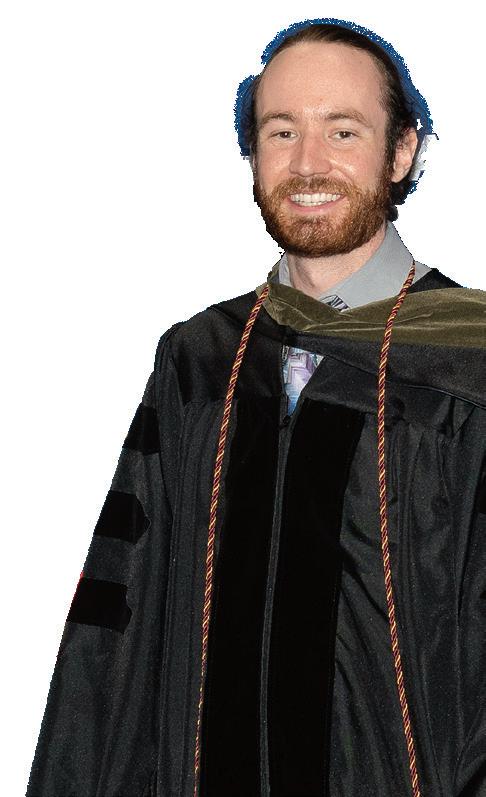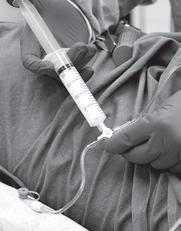

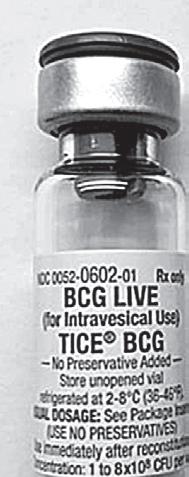



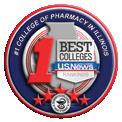
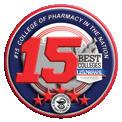



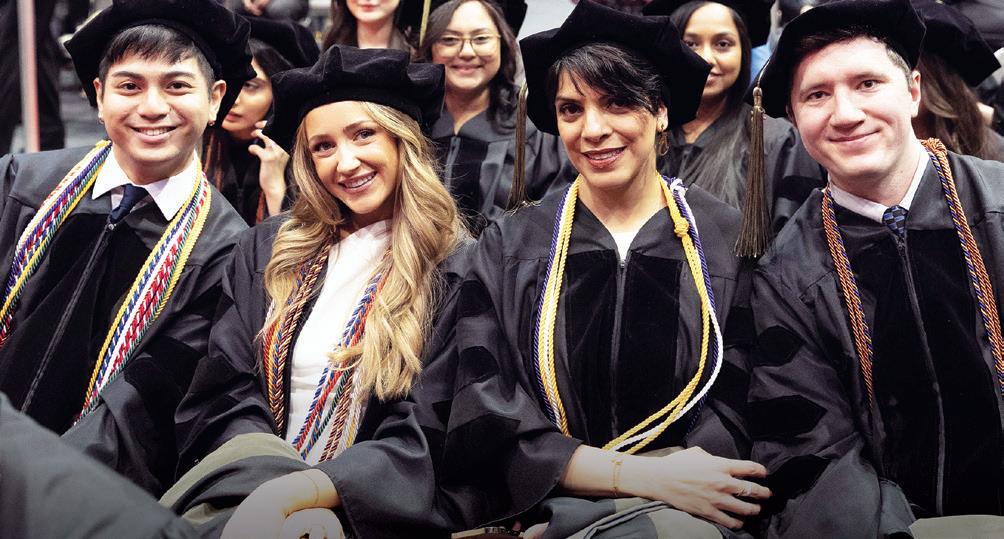













BY DEAN GLEN SCHUMOCK
Welcome to the Summer 2025 issue of The Pharmacist. In this and every issue, you will find stories on important innovations in education, research, and service taking place at the UIC Retzky College of Pharmacy. Innovations that have produced new drugs that have saved lives. Innovations that have advanced the practice of pharmacy and thereby have improved patient health and quality of life. And innovations in the delivery of pharmacy education and training that have improved the knowledge and skills of our graduates to enable their career success and impact.
The lead article in this issue, “Innovation Nation,” provides examples of some of the many ways our faculty are advancing science with the help of federal funding. The research described has important implications for the treatment of cancer, infectious diseases, and many other diseases. Just as innovations made
in the past have resulted in new drugs and treatments that are saving lives today, the research being done at the College today will power the cures of tomorrow. But without external funding, this work and those outcomes would not be possible. The achievements of our research faculty, and the impact of our innovations, are evidence of the return on investment generated from federal funding of pharmaceutical research, and the need for it to continue.
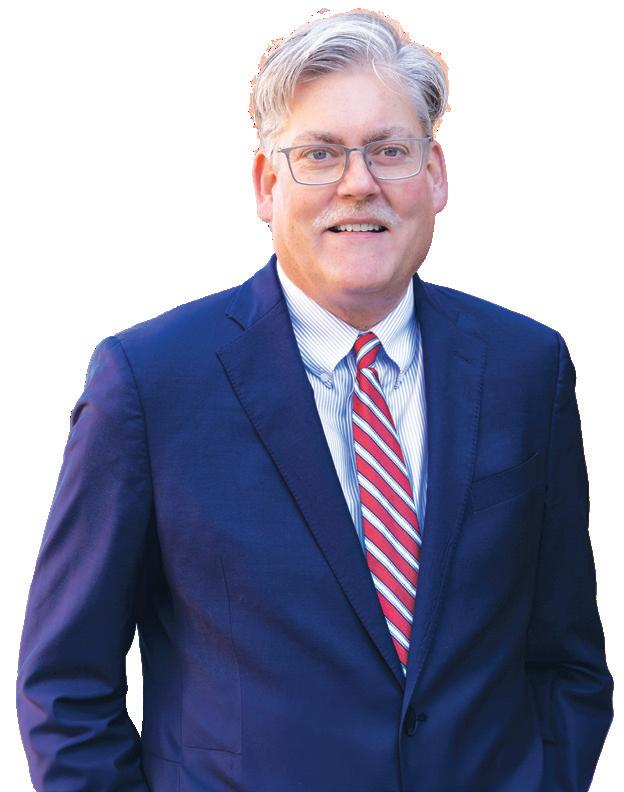
Our commitment to innovation is also evident in our educational programs. In “Pharmacy without Borders,” we celebrate the 10th anniversary of the collaborative international doctorate in pharmacy program with the University of Malta. UIC Retzky College of Pharmacy and University of Malta faculty have worked together for a decade to deliver PharmD education in one of the only programs of its kind globally. Importantly, graduates of the program Online
pharmacy.uic.edu
go.uic.edu/PharmFBChicago
go.uic.edu/PharmFBRockford
go.uic.edu/PharmTwitter
go.uic.edu/PharmLinkedIn
go.uic.edu/PharmInstagram
go.uic.edu/PharmYouTube
Change jobs? Get a promotion? Publish a paper? Publish a book? Get married? Have a baby? We want to hear about it all! Submit your updates at go.uic.edu/retzky
have used the unique training to improve the practice of pharmacy and service models around the world.
Innovation in the delivery of pharmacy care is also core to our mission. In the article, “Exhausted,” you will read about an innovative program to protect patients by reducing occupational fatigue in pharmacy workers. Dr. Taylor Watterson is leading this effort to understand and find solutions to reduce burnout and fatigue in pharmacists and pharmacy technicians in community pharmacies. This work promises to have important safety, mental health, and financial implications for patients, pharmacy workers, and pharmacy organizations.
Innovation. It is one of our core values, and one of the things that distinguishes this college and university. It is empowered by donors and sponsors of research and driven by passionate and forward-looking faculty. It produces benefits that are often far-reaching and that advance society in ways that can be monumental, and it is essential for our future.
UIC Retzky College of Pharmacy’s Office of Continuing Education and Meeting Services (OCEMS) offers continuing education courses for pharmacists, pharmacy technicians and pharmaceutical representatives. See below for upcoming ACPE-approved CE opportunities:
• Pharmacy Technician CE Programs
• Pharmacist CE Programs
• Pharmaceutical Representative Programs are available for the City of Chicago, the State of Oregon, and the District of Columbia Board of Pharmacy.
Visit go.uic.edu/pharmce to learn more and sign up for course offerings.
ILLINOIS TRANSPLANT PHARMACISTS ASSOCIATION (ITPA) SYMPOSIUM
Please join us for the 8th annual Illinois Transplant Pharmacists Association (ITPA) Symposium to be held at UIC Retzky College of Pharmacy on Saturday, October 4, 2025. For more information and to register, please visit itpasymposium.uic.edu
IF YOU HAVE QUESTIONS OR SUGGESTIONS FOR FUTURE PROGRAMS, please contact us at pharmce@uic.edu
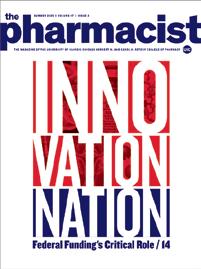
Dr. Zack Bulman was awarded a 2-year, $456,911 R21 grant from the National Institute of Allergy and Infectious Diseases for the project titled “Innovative Antibiotic Combinations for Hypervirulent Klebsiella pneumoniae.”
Drs. Zachary Bulman, Yury Polikanov, and Shura Mankin received a $434,954 grant from the NIH/NAID for a study titled, “Structural, functional, and microbiological exploration toward synergistic dual aminoglycoside combinations.”
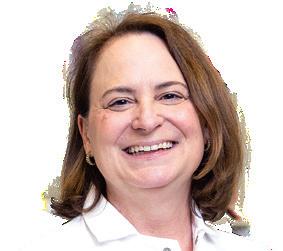
Dr. Joanna Burdette spoke at the most recent UIC Spark Talks. Spark Talks are 3-minute presentations by UIC Faculty about the speakers’ area of expertise. Dr. Burdette's talk was about her research on ovarian cancer.
Dr. Bharath Chelluboina has received a $300,000 grant from the American Heart Association for the project, “Ischemic Stroke Reduces Renal Function and Promotes Systemic Inflammatory Mechanisms.”
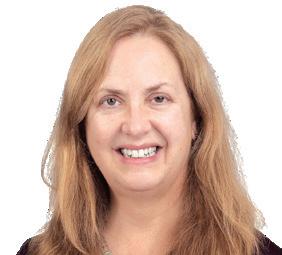
Dr. Nancy Freitag co-authored a publication in the journal Science about understanding how the immune response differentiates between self and non-self during a microbial infection.
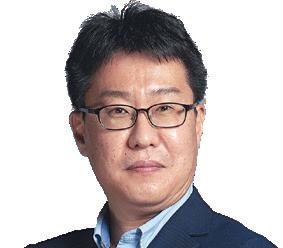
Dr. Steve Lee was awarded a Chancellor’s Translational Research Initiative award from the Office of the Vice Chancellor for Innovation and the Office of Technology Management for his work on a human CD40 agonist antibody for a cancer vaccine.
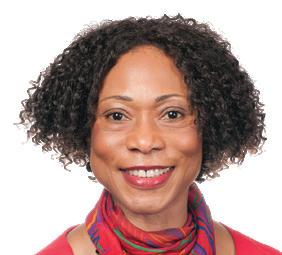
Dr. Clara Okorie-Awe was selected to serve on the National Association of Diversity Officers in Higher Education Board of Directors.
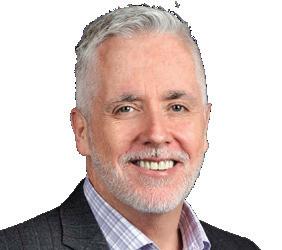
Dr. Kevin Rynn, Vice Dean of the Rockford Campus, spoke at the most recent UIC Spark Talks. Spark Talks are 3-minute presentations by UIC Faculty about the speakers’ area of expertise. Dr. Rynn's talk was about rural pharmacy.
Dr. Steve Seung-Young Lee received a grant from the National Cancer Institute to develop a novel spatial proteomics method.
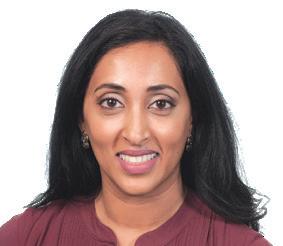
Dr. Rosalyn Vellurattil was awarded the Assessment SIG Collaborative Research Publication Award. Dr. Vellurattil also won the award in 2019.
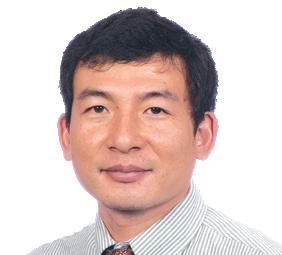
Dr. Jim Wang was awarded a $7 million grant from the NIH National Heart, Lung, and Blood Institute for his research titled, “Molecular Mechanism and Targeting of Chronic Pain in Sickle Cell Disease.”
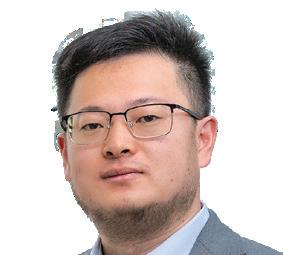
Dr. Zongmin Zhao was awarded a Chancellor’s Translational Research Initiative award from the Office of the Vice Chancellor for Innovation and the Office of Technology Management for his work on nanoparticle-decorated myeloid-derived suppressor cells for immunotherapy of multiple sclerosis.
Dr. Zongmin Zhao received a grant from the Department of Defense for a study titled, “Regeneration of the bone marrow hematopoietic niche by Jagged1 expressing myeloid derived suppressor cells.”

Golden Apple Award
Dr. Varanya Chaiyaperm
Preceptor of the Year
Dr. Zane Elfessi
P1 Teacher of the Year
Dr. Varanya Chaiyaperm
P2 Teacher of the Year
Dr. Brad Bartels
The Retzky College of Pharmacy was listed in Forbes as one of the top recipients of National Institutes of Health (NIH) funding, with over $12 million in research awards.

UIC Today published a list of “Top 10 Innovations from UIC Researchers.” The College of Pharmacy made the list twice. The bladder cancer drug TICE BCG and the contraceptive gel PHEXXI both made the list.
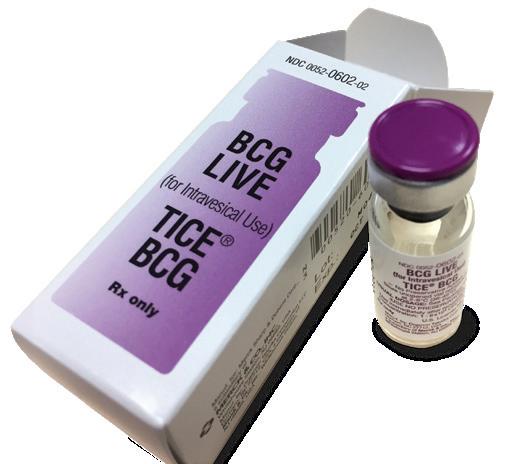
According to the Industry Pharmacists Organization (IPhO), the Retzky College of Pharmacy is top 10 in number of PharmD graduates placed in Pharmaceutical Industry Fellowships for 2024-2025.

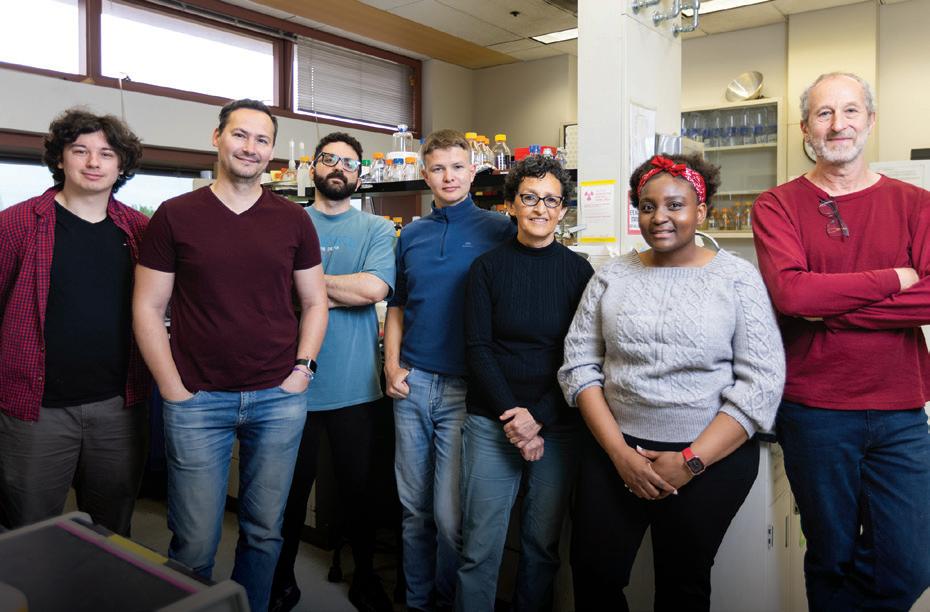
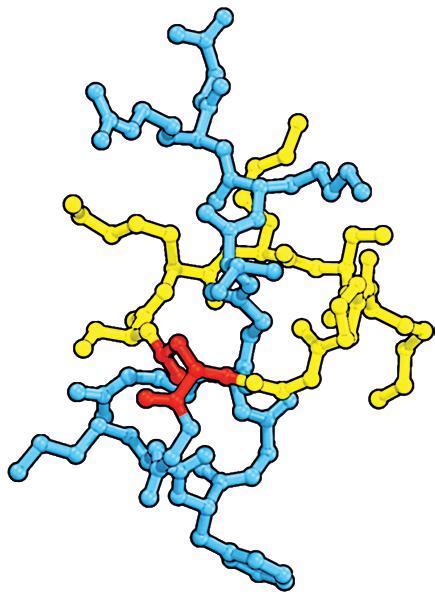
BY ROB MITCHUM
A small molecule shaped like a lasso may be a powerful tool in the fight against infectious diseases, according to a new study in Nature co-authored by University of Illinois Chicago researchers.
Lariocidin, a peptide made by bacteria living in soil, was effective against several different microbes responsible for deadly infections. UIC researchers working with collaborators at McMaster University in Canada determined how the new antibiotic works and why the drug evades bacterial resistance.
“The holy grail in the field is to find an antibiotic that binds to a new site target, has a novel mechanism of action and has a new structure, compared to antibiotics that have been known before,” said Alexander Mankin, distinguished professor of pharmaceutical sciences at UIC. “Lariocidin hits all these goals.”
The paper was co-authored by UIC postdoctoral researcher Dmitrii Travin and includes UIC co-authors Mankin, Elena Aleksandrova, Dorota Klepacki, Nora Vázquez-Laslop and Yury Polikanov.
Lariocidin is a newly discovered member of the lasso peptide family—tiny proteins shaped like a lasso, with a loop of amino acids at one end and a tail threaded through it. The new peptide was discovered in bacteria collected in the backyard of one of the scientists in Canada.
After McMaster researchers observed that lariocidin could kill several disease-causing microbes, they worked with the UIC researchers to study how it works. In biochemical and structural experiments, the team found that lariocidin binds to and blocks the ribosome, the cell’s factory for making new proteins.
“We found a new job for these lasso peptides,” Travin said. “No one knew that lasso peptides could bind to the ribosome and kill bacteria by not allowing them to make new proteins.”
Because lariocidin binds at a site different from where other antibiotics bind to ribosomes, it avoids the defenses that bacteria have evolved to resist other drugs.
“In the antibiotic discovery field, you want a weapon which kills by targeting something different than the previous ones did before,” said Polikanov, associate professor of biological sciences. “Otherwise, previously used protections will automatically lead to defense against the new molecule.”
The peptide’s unique structure may also help circumvent another common bacterial defense, Travin said. To tie up a ribosome, an antibiotic first needs to get inside the bacterial cell. Many drugs sneak in through transporters, but bacteria can change or remove these to block the drugs.
By contrast, lariocidin has a strong positive charge, which likely allows it to pass directly through membranes without the need of transporters. That makes the molecule a broad-spectrum antibiotic.
“If you do not rely on any specific transporter, you can penetrate the majority of bacteria,” Travin said. “And if a transporter is not needed, then the probability of resistance is lower.”
The researchers additionally studied a variant of lariocidin, which takes on a more intricate three-dimensional shape, looping its tail to resemble a pretzel. This even more stable structure might be the most promising candidate for clinical development, the researchers said. The bioinformatic analysis of available bacterial genomes suggests there could be other lasso and pretzel peptides that target ribosomes still to be discovered in nature.
“Essentially, lariocidin is the founding member of a new family of antibiotics with a similar mechanism of action,” Travin said. “Time will show whether some other peptides of this kind will be even more active than this one. But we already have our foot in the door.”
Funding for the research was provided by National Institutes of Health to Polikanov, Mankin and Vázquez-Laslop.
WE ARE EXCITED TO WELCOME OUR KEYNOTE SPEAKER
Dr. Michael N. Dudley, PharmD, FIDSA, President, CEO, and co-founder of Qpex Biopharma.
CALL FOR RESEARCH DAY ALUMNI JUDGES
We are looking for volunteer judges for UIC Pharmacy's Annual Research Day. Please contact Dr. Lindsey McQuade at lmcquade@uic.edu to sign up. Judges must be able to judge research posters in person on October 30, 2025 from 9:30 a.m. - 12:30 p.m. Lunch will be provided afterwards.
MORE INFORMATION + RESEARCH DAY AGENDA researchday.pharmacy.uic.edu OCT 30, 2025
BY PIER ROGERS
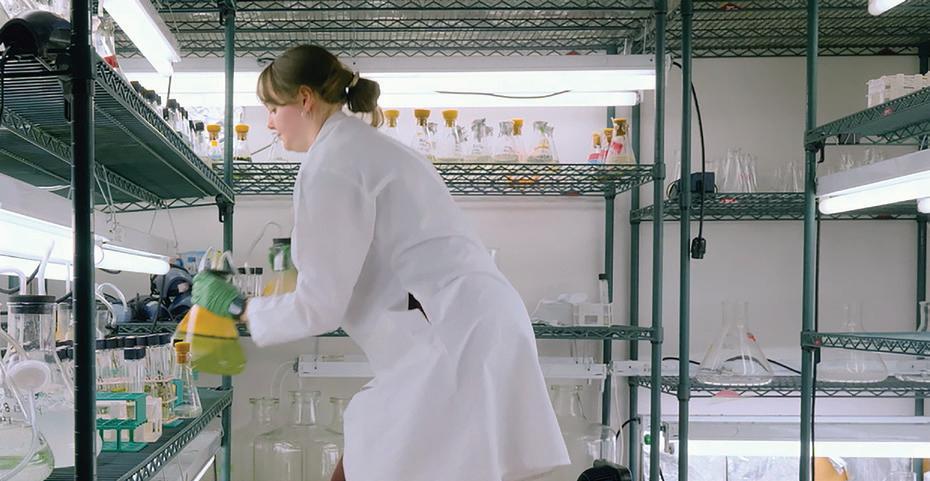

One of the largest repositories in the United States of North American freshwater cyanobacteria, conventionally known as pond scum, is in the lab of Jimmy Orjala, PhD, Professor and Associate Head for Research of Pharmaceutical Sciences at the Retzky College of Pharmacy and member of the University of Illinois Cancer Center’s Translational Oncology Research Program.
Using samples collected from diverse environments such as temperate lakes, rainforests, savannas, boreal forests and subtropical wetlands, the Orjala Lab uses them to focus on the discovery of novel anticancer and antimicrobial metabolites from freshwater cyanobacteria using genomic tools, mass spectrometry and spectroscopic techniques.
As of October 2024, the Orjala Strain Library had 1,528 unique cyanobacteria strains. They isolate their strains from soil and freshwater samples across the country. There are currently 28 states represented in the library, including Alaska and Hawaii. A few of the strains are also sourced from Iceland thanks to a collaboration with the lab of Brian T. Murphy, Professor of Pharmaceutical Sciences.
“Cyanobacteria, sometimes called blue-green algae, are a large group of bacteria that are present in nearly every climate and ecosystem on the planet. Unlike most other bacteria, they are photosynthetic. They introduced oxygen into our atmosphere billions of years ago, and it is currently believed that
plants used cyanobacteria to develop their ability to photosynthesize,” explains Orjala.
Additionally, the UIC Strain Library is a vast collection of cyanobacteria collected from freshwater and estuarine environments around the world. Over one hundred strains are added to the library each year.
One of the recent discoveries from the Orjala lab was the structures of Aulosirazoles B and C, two structural analogues of the known cytotoxic compound Aulosirazole A. These were discovered from a cyanobacterial strain originally isolated from a soil sample from Iceland.
Aulosirazoles A and B were found to be active against several ovarian cancer cells. They were found to cause the FOXO3a protein, a known tumor suppressor, to accumulate in the nuclei of cancer cells. Once within the nucleus, FOXO3a regulate the transcription of certain genes and prevent further growth of cancer cells. Many tumor cells will activate a pathway which inhibits the FOXO3a translocation to the nucleus and leaving it in the cytoplasm. But when the cells are treated with Aulosirazole, FOXO3a will move to the nucleus again.
“This discovery is very promising for the future of ovarian cancer treatment efforts, and we are hopeful that Aulosirazole’s structure can be used as a new foundation for the development of ovarian cancer drug leads,” Orjala said.
BY ROB MITCHUM
Nitric oxide is an important cell-signaling molecule in the body. It regulates blood pressure, immune response and the nervous system. But nitric oxide is not like other cellular signals. As a small free radical, it only exists for a few seconds but can move easily inside and across cells, controlling their function.
A study from UIC researchers has found a substantial new way that nitric oxide can influence a cell and, more broadly, a person’s health. By switching genes off and on, the shortlived signal can have long-term effects on human health and disease, according to a team led by Douglas Thomas of UIC. That ability may explain nitric oxide’s known role in making certain types of cancers more deadly.
The Nature Communications paper is the latest in a long line of research from Thomas’ laboratory on how nitric oxide can control epigenetics.
“If your DNA is your hard drive, epigenetics is the software that controls your genetic program,” said Thomas, associate professor in the Retzky College of Pharmacy and member of the University of Illinois Cancer Center. By discovering nitric oxide’s effect on an epigenetic process called DNA methylation, “we’ve discovered basically an entirely new mechanism of nitric-oxide signaling.”
In each cell, only a fraction of genes is turned on at any given time. One control switch used by cells is DNA methylation, where a small chemical group is added to or removed from genes to control their expression.
In both normal and cancer cells, Thomas and colleagues found that nitric oxide acts as a molecular switch by increasing the methylation of DNA to turn specific genes
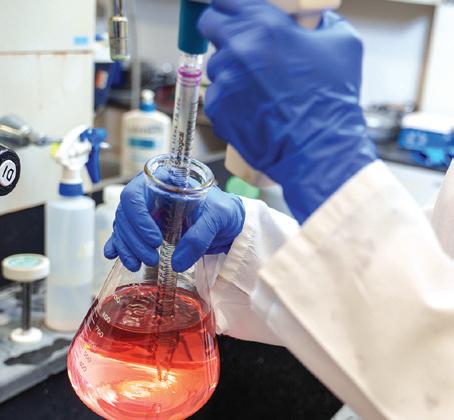
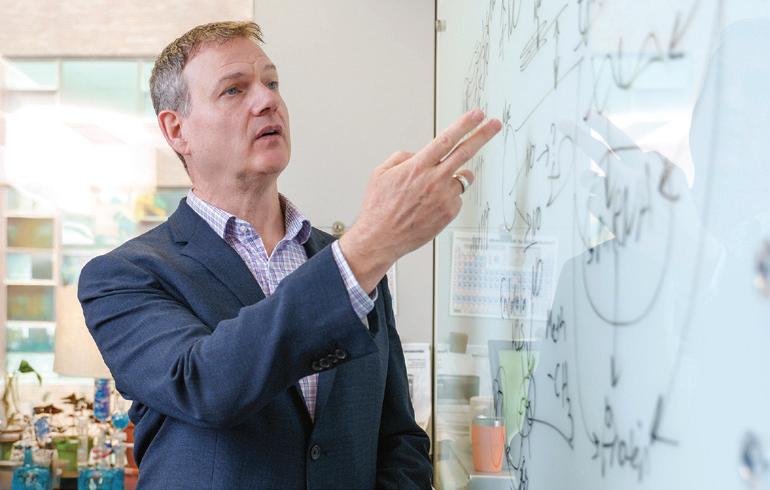
on and off. Additional experiments found that nitric oxide causes this effect by blocking enzymes that normally remove methyl groups from genes.
That disruption could produce serious health effects, particularly if the genes affected promote or suppress the progression of cancer. Indeed, cancers with tumors expressing high levels of nitric oxide synthase—the enzyme that makes nitric oxide in cells—have a high mortality rate.
“If it’s turning on oncogenes or turning off tumor suppressors, then you can see how this effect might be making cancer worse,” Thomas said.
In future research, Thomas’ group will look at how nitric oxide’s epigenetic effects change other cellular processes; nitric oxide is known to play a role in many other diseases. These affected pathways could inspire new therapeutics for cancer, cardiovascular disease and other conditions related to nitric oxide activity, he said.
Additional UIC co-authors on the paper include Marianne Palczewski, Hannah Petraitis Kuschman, Aydolun Petenkaya and Constantinos Chronis. The work was funded by grants from the National Institutes of Health, the University of Illinois Chicago Department of Pharmaceutical Sciences Bridge Fund, Hans W. Vahlteich Bridge Fund, UICentre, and the University of Illinois Cancer Center.
BY JENNA KURTZWEIL
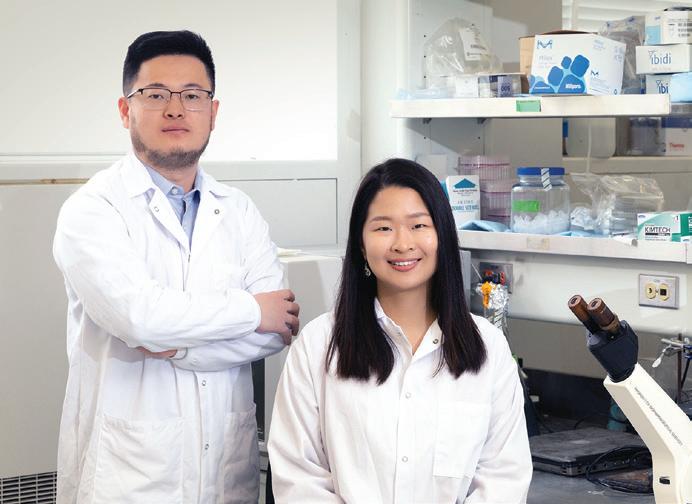
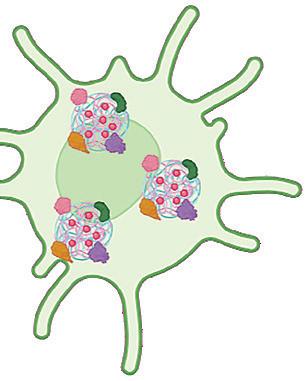
Racers on a relay team depend on one another to ferry the baton across the finish line. With this concept in mind, University of Illinois Chicago researchers designed a topof-the-line relay process entirely in the body’s immune system to challenge the ultimate opponent: cancer.
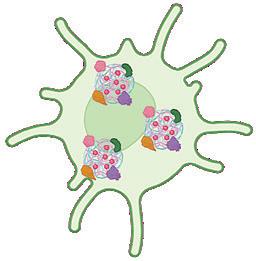
The researchers’ immuno-relay design presents a more efficient, longer-term strategy to eradicate tumors and prevent recurrence. Their work appears in the journal Nature Communications.
Immunotherapy is a cancer treatment that trains your immune system to recognize tumor cells, fight them and prevent them from coming back. It runs on the cancer-immunity cycle, which resembles a relay race: Off with a shotgun start, antigens—or foreign bodies derived from the tumor—trigger the body’s immune response. Next, processing cells take up those antigens and deliver them to the lymph nodes. In the final stretch, the lymph nodes release their anchor: T cells primed to attack the original tumor.
Immunotherapy is promising but limited because tumor sites are hostile to the immune system. Researchers typically conduct the relay’s second leg—the part where antigens bind with processing cells—outside the body, extracting the elements and mixing them before returning them to the patient. The exit and reentry results in inefficiencies like antigen loss and mismatch.
According to the researchers, a way to improve immunotherapy is to engineer the process entirely in vivo—to move the racetrack inside the body.
“This technology can open up opportunities for treating tumors that are unresponsive to therapy—like glioblastoma in the brain—either alone or in combination with existing immunotherapies,” said lead investigator Zongmin Zhao, a UIC professor of pharmaceutical sciences and a member of the University of Illinois Cancer Center.
To do this, the researchers added two players to the relay team: first, a type of processing cell called cDC1s, short for adoptively transferred migratory type 1 conventional dendritic cells; and second, a specially designed antigencapturing nano-sponge. The nano-sponge helps cDC1s bind with tumor antigens and deliver them to the lymph nodes—all without venturing outside the body.
Their method is called antigen-capturing nanoparticle transformed dendritic cell therapy.
Results indicate that when used in combination with immune checkpoint inhibitors (another variety of immunotherapy), the researchers’ method eliminates colon cancer, melanoma and glioma primary tumors in 50% to 100% of treated mice. In simulations, the method also effectively rejected two potential recurrences of tumors.
“Ours is a promising, broadly effective approach for in situ cancer immunization,” Zhao said. This method can uniquely alter the tumor microenvironment—the cells in and around it—to be less hostile toward the immune system, he added.
Chih-Jia (Bess) Chao, the study’s first author and a doctoral candidate in pharmaceutical sciences at UIC, said next steps for the technology include exploring how the new method can help people.
“Our technology is effective so far, and that makes me very excited,” she said.
UIC co-authors include: Endong Zhang, Duong N. Trinh, Edidiong Udofa, Shan He, Jingtian Zheng, Xiaoying Cai, Qing Bao, Luyu Zhang, Philana Phan, Sara M. Elgendy, Xiangqian Shi, as well as UIC Pharmacy faculty Joanna E. Burdette, Steve Seung-Young Lee, and Yu Gao. Other external co-authors include: Hanchen Lin, Caylee Silvers, Jiawei Huo, and Peng Zhang from Northwestern University.
GET FIRED UP ABOUT ALL THE AMAZING INITIATIVES HAPPENING AT THE UIC RETZKY COLLEGE OF PHARMACY.

FOLLOW US ON SOCIAL MEDIA
Be the first to know about all of the college’s events, news, and opportunities to get involved.
Continue receiving our alumni magazine, The Pharmacist
Update your contact information at go.uic.edu/AlumniUpdate.
Whether you’re in Chicago, Rockford, across the country, or around the world, WITNESS WHERE THE SPARK WAS FIRST IGNITED—YOUR ALMA MATER, #UICPHARM.

go.uic.edu/PharmFBChicago go.uic.edu/PharmFBRockford go.uic.edu/PharmTwitter go.uic.edu/PharmInstagram go.uic.edu/PharmLinkedIn
UIC Pharmacy was #5 in the Nation for number of students matched for Residency Match Day 2025. In Phase 1, 103 PGY1 and PGY2 Residents matched in 20 states.
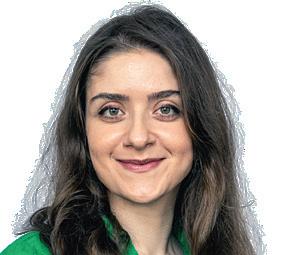
Sonia Alavi was selected for the 2025 Chicago Consular Corps Award. The award "sends the message to the foreign students that we appreciate, admire, and support their efforts."

Student Pharmacist Asia Banks worked with Alkemi Health to co-author the article “Capturing Real-World Rare Disease Patient Journeys: Are Current Methodologies Sufficient for Informed Healthcare Decisions?” in the Journal of Evaluation in Clinical Practice.
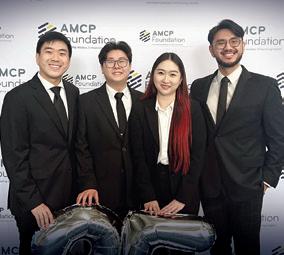
Student pharmacists Daniel Lee, Charles Balisalisa, Isabel Xiao, Charles Liu, comprised the College’s award-winning P & T Competition team. The team came in first place in the national P&T Competition sponsored by AMCP. The team’s faculty advisor was Dr. Margaret Byun.
PSOP Grad Students Michael Kim, Bertha De Los Santos, Minnie Chen, and Justin Yu, were crowned champions of the ISPOR Student Research Competition at the recent ISPOR Conference.
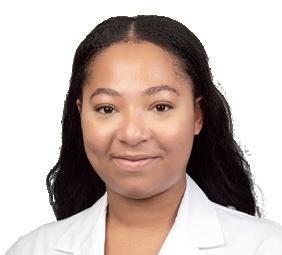
Student pharmacist Brie McCann won the 2025 UI Health UHP
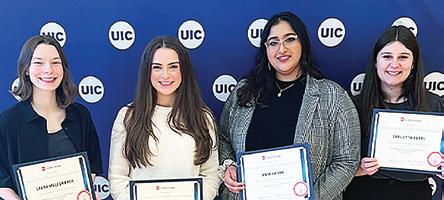
Since 1973, the Chancellor’s Student Service and Leadership Awards (CSSLA) have recognized outstanding UIC student leaders and student
Student Achievement Award. The award recognizes McCann’s “achievements and leadership.”
Angela Nguyen, PhD student, won first prize at UIC’s 8th Annual 3 Minute Thesis competition. She went on to the regional competition hosted by the Midwestern Association of Graduate Studies in Indianapolis where she was selected as a Top 10 finalist.

Jay Teamer, PhD candidate and member of the Gemeinhart Lab, received the Life Science Scholarship for VC University, a program by NVCA, Venture Forward, and Berkeley Law. As part of Cohort 18, Jay will be studying life science venture capital.
volunteers who, while maintaining high academic achievement, demonstrate a commitment to the UIC community through participation in student organizations and campus activities and throughout the greater Chicagoland area through active service and community engagement.
This year’s ceremony was held on Thursday, April 24 in Student Center East. 59 UIC Pharmacy students received the Chancellor’s Student Service Award.


Does your company or organization have opportunities such as full- or part-time jobs, internships, fellowships, residencies or volunteer opportunities for our student pharmacists and alumni? If so, we would love to share them!
PLEASE
OR
OPPORTUNITIES
BY
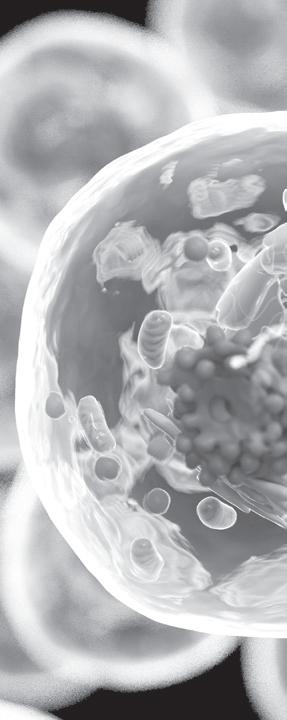
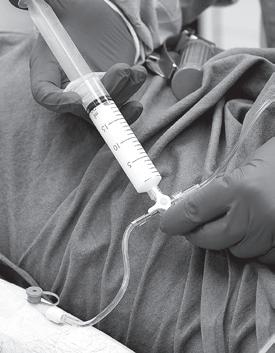
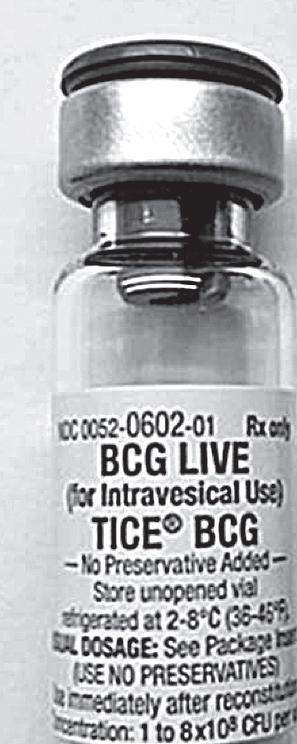



The U.S. government has long invested in scientific research and development—often, with significant impact to society.
From innovating staples of contemporary life, such as the Internet and GPS, to delivering healthcare advancements like diagnostic tools and novel therapies, investment from the federal government has spurred progress and enhanced lives. The nation’s investment in basic research, in particular, has been critical to laying a foundation for additional inquiry and discoveries benefiting the nation and the world.
In addition, federal funding allows researchers to explore ambitious questions, breeds energizing opportunities for young scientists, and creates new knowledge that fuels understanding and empowers breakthroughs. It is a core ingredient in any research university’s investigative enterprise, including UIC and the Retzky College of Pharmacy.
“It’s rare that any long-term scientific research is done without the involvement of federal research dollars, and that’s especially so in the biomedical space,” says Joanna Burdette, assistant dean for research at the UIC Retzky College of Pharmacy. “No one funds at the level of the federal government, and it's tough to sustain a lively research enterprise without federal funding to support the infrastructure, people, resources, and supplies necessary to carry out ambitious scientific work.”
At UIC, federal funding from the likes of the National Institutes of Health (NIH)—the country’s premier supporter of biomedical research—as well as the Department of Defense’s Congressionally Directed
Medical Research Programs, the National Science Foundation, and the Department of Energy, has spurred a range of compelling, impactful projects over the years.
Decades ago, for instance, researchers at the college’s Institute for Tuberculosis Research developed TICE BCG as a vaccine for tuberculosis. It later became a common therapy to treat and prevent certain types of bladder cancer. More recently, Phexxi, has gained widespread use as a Food and Drug Administrationapproved non-hormonal contraceptive agent. Codeveloped by Donald Waller, professor of pharmacology and toxicology, Phexxi is also generating impressive early data as a potential agent to combat sexually transmitted diseases as well.
Today, UIC-based researchers continue their scientific exploration with a high-powered boost from federal agencies. Researchers are examining infectious diseases such as malaria and Ebola, concocting new cancer therapies, uncovering new antibacterial drugs, assessing the therapeutic potential of natural products, creating novel drug delivery methods, and more to advance science and society.
In the human body, nitric oxide is an essential cellsignaling molecule. It regulates many physiological responses, such as blood pressure, immune response, and the nervous system. But this short-lived and fastmoving free radical can also have a significant impact on human diseases, reports Douglas Thomas, associate professor of pharmaceutical sciences.



Through its ability to freely diffuse within and between cells and modulate diverse cell-signaling processes, nitric oxide exerts profound and lasting effects on human health and disease, contributing to the pathogenesis of various cancers, cardiovascular disorders, inflammatory conditions, and neurological diseases.
In recent research fueled by funding from the NIH’s National Institute of General Medical Sciences, Thomas and his team discovered an entirely new mechanism of nitric oxide signaling by demonstrating that nitric oxide can regulate gene expression through epigenetic processes, specifically DNA methylation.
“It opens up a new field and paradigm shift in how we view diseases associated with nitric oxide,” Thomas says.
With a stronger understanding of how nitric oxide controls epigenetic programs and influences how a cell functions and contributes to various disease states, Thomas’ team clears an exciting path to explore potential new treatment mechanisms.
“We do the groundwork to understand the molecular mechanisms, so others can take this knowledge and develop targeted therapies to reverse these negative nitric oxide-associated cell states and slow, if not cure, diseases,” he says.
Yu Gao’s UIC-based lab is one of the select academic and institutional research groups participating in the groundbreaking Human BioMolecular Atlas Program (HuBMAP). Funded by the NIH Common Fund, HuBMAP aims to build a comprehensive, open atlas of the healthy human body at the cellular level. The work— understanding how the trillions of cells in the adult human body interact, connect, and arrange into tissues— has profound implications for human health, Gao says.
Gao’s lab team became involved with HuBMAP three years ago, teaming with UIC College of Medicine colleague Alexandra Naba to develop the world’s first human extracellular matrix (ECM). A network of molecules surrounding and supporting cells in tissues and organs, ECM has been understudied compared to cells, a trend Gao and his team are actively working to turn with their HuBMAP work.
According to Gao, enhanced knowledge of ECM will improve understanding of countless physiological processes to elevate human health. ECM, for
It’s rare that any longterm scientific research is done without the involvement of federal research dollars, and that’s especially so in the biomedical space.
instance, can provide clues into how cancer tumors migrate, which can help generate therapeutics to prevent or inhibit tumor progression and combat cancer. ECM can also spark more effective ways to address wound healing and tissue regeneration.
“HuBMAP is a cornerstone of future human research,” says Gao, associate professor of pharmaceutical sciences. “It will help us better understand tissue organization and function, which will accelerate biomedical research, stimulate new technologies, deepen knowledge of diseases, and strengthen personalized medicine.”
In the nation’s hospitals and nursing homes, healthcare-associated infections (HAI) represent an ongoing threat to patient safety and healthcare quality. In hospitals alone, one in 31 patients incur at least one HAI, according to the Centers for Disease Control. These HAIs result in more than 680,000 infections each year, preventable fatalities, billions of dollars in excess costs, and compounded stress to patients and families.
Nancy Freitag, professor and head of the Department of Pharmaceutical Sciences, is battling HAIs with research specifically targeting the mysterious ties between propofol, a commonly used anesthetic, and an increased risk of HAIs.
Powered by a recently concluded two-year grant from the National Institute of Allergy and Infectious Diseases (NIAID), Freitag studied mouse models and discovered even a five-minute sedation period with propofol—an admittedly safe and effective anesthetic—was enough to increase the severity of microbial infection in those already infected or infected within five days of recovery from sedation.
“When confronting hospital-acquired infections, it’s good to know about anything that increases risk of infection to patients,” Freitag says. “If we can understand why these patients are more susceptible to infection when using propofol, then we can then try to counteract the negative effects or issue a different or modified drug without these side effects.”
With her initial two-year NIAID funding complete, Freitag is currently leaning on a modest bank of UIC funding to preserve her team’s research momentum while also preparing a new five-year grant proposal for NIAID’s consideration.
“The hope is we are pushing this research forward with new funding by early 2026,” she says.
Alexander (Shura) Mankin knows bacteria are smart and crafty. When exposed to therapeutics, bacteria adapt and dodge interventions.
“There are more and more bacterial pathogens for which there are almost no treatment, so we’re in an arms race against bacteria,” says Mankin, distinguished professor of pharmaceutical sciences. “We’ve got to stay ahead and create antibiotics that infectious bacteria haven’t seen before.”
Partnering with scientists from McMaster University in Canada and from UIC Biology, Mankin is doing just that, investigating how three different antibiotics are eliminating pathogenic material.
In a recent study published in Nature, for example, Mankin, his UIC lab co-lead, Nora Vazquez-Laslop, and their Canadian collaborators introduced Lariocidin, a peptide made by bacteria living in soil. Lariocidin proved effective against several different microbes responsible for fatal infections, outsmarting bacteria by binding to a new target site, displaying a novel mechanism of action, and presenting a different structure to bacteria.
“The holy grail of antibiotic research is to find a drug with a new chemical structure, acting upon a new target, and never before seen by pathogenic bacteria,” Mankin says.
Lariocidin represents the Mankin/Vazquez-Laslop lab’s latest promising development in the hunt for new antibiotics, but Mankin teases even more.
“A decade from now, I believe we can have an arsenal of novel antibiotics to treat new bacterial pathogens
as well as old pathogens that have become resistant to existing therapeutics,” he says.
The NIH’s National Institute of General Medical Sciences supports Mankin’s work, and he considers federal funding absolutely essential to antibiotic research.
“This type of forward-looking research is too expensive for small pharma to handle and not profitable enough to stoke large pharma’s interest, so federal funding is critical to advancing science in this important area,” he says.
The American Cancer Society pegs a woman’s risk of getting ovarian cancer at one in 91. The organization also estimates about 21,000 U.S. women will receive a new diagnosis of ovarian cancer this year alone. For another 13,000 women in the U.S., ovarian cancer— among the leading causes of cancer deaths among women around the world—will prove fatal in 2025.
For the last 15 years, Burdette has been leading basic research programs to help transform ovarian cancer treatment and generate improved results.
Empowered by funding from NIH and the Department of Defense, Burdette has found ovarian cancer does not start in the ovaries but rather the fallopian tubes. Slowly, her discovery has ignited changes in clinical action and guidance. Most notably, many clinicians now counsel women deemed high risk of developing ovarian cancer to consider having their fallopian tubes, not their ovaries, removed.
“If we take the wrong tissue out of women who are high risk, we’re not only failing to solve the problem, but we’re having these women endure an unnecessary surgery,” Burdette says, adding that removing a high-risk woman’s ovaries, a oncecommon practice, wholly eliminates her ability to birth children.
While it is too early to discern the impact of proactively removing fallopian tubes on ovarian cancer rates, Burdette points to Canadian studies signaling a slowdown.
“Knowing these concerns arise in certain tissues and showing fallopian tubes as the source of ovarian cancer has supported changes in cancer care and should continue to help women avoid this lifealtering diagnosis,” Burdette says.



The UIC Retzky College of Pharmacy and the University of Malta celebrate a decade of collaboration advancing pharmacy education, practice, and research as well as global healthcare.
The UIC Retzky College of Pharmacy and the University advancing pharmacy education, practice, and research
In mid-March, UIC Retzky College of Pharmacy faculty members Dr. Alan Lau, Dr. Andrew Donnelly, and Dr. Jennifer Pham found themselves more than 5,000 miles away from their Chicago homes and in an especially festive mood.
The UIC trio gathered with colleagues from the University of Malta to celebrate the 10-year anniversary of the collaborative Doctorate in Pharmacy program, a lively international partnership producing benefits for faculty, students, and researchers at both academic institutions.
Since UIC faculty helped their Malta counterparts launch the doctorate program in 2014, more than 100 University of Malta students representing 23 countries have completed their studies and transitioned into professional roles around the world. Through additional initiatives, including faculty development and joint scholarly activities, the two institutions have further enlivened their partnership as well as pharmacy education, practice, and research to propel both the profession and global healthcare.
“This has been a friendly, warm relationship with a group of colleagues who share our vision to advance practice and research and positively impact the next generation of pharmacists,” confirms Lau, professor of pharmacy practice and director of International Clinical Pharmacy Education at the Retzky College of Pharmacy.
UIC’s relationship with the University of Malta begins more than 15 years ago with former UIC Pharmacy Dean Dr. Henri Manasse. At the 2009 American Society of Health-System Pharmacists’ Midyear Clinical Meeting in Las Vegas, Manasse pulled Lau into a conversation with faculty from the University of Malta.
There, leaders from the European university’s Department of Pharmacy outlined their vision for a doctorate program blending pharmacy practice and research. They also detailed their most pressing need, namely support from an academic partner with proven excellence in pharmacy health systems as a platform to intensify knowledge, people-centered practice, and innovative research. UIC seemed an ideal companion and Malta leaders asked for assistance. It would be a mighty task, both parties acknowledged, yet one with compelling potential.
“But what do people do in Vegas? They gamble, right?” Lau asks. “We took a gamble ourselves.”
Over the next four years, after the initial collaboration framework had been completed, Pham spearheaded the creation of the design and contents of the doctorate program alongside Dr. Lilian M. Azzopardi, head of the University of Malta’s Department of Pharmacy. The leaders visited each other’s campuses, analyzed existing courses and strengths, identified gaps, and defined program parameters.
To launch the doctorate program in 2014, UIC shared teaching materials and resources and provided access to faculty. The University of Malta, for instance, did not have advanced practice courses covering specialty areas like pharmacotherapy, so UIC provided up to 140 hours of recorded lectures in addition to real-time case recitation with UIC faculty.
UIC’s commitment stimulated the upstart program’s growth, which quickly captured the attention of aspiring pharmacists from Malta as well as nations across Europe, Asia, and Africa. Within five years, 76 students representing 18 different countries had enrolled in Malta’s doctorate program.

An earnest partner, UIC has continued to evolve its support of its Maltese colleagues, too. Pham, for instance, has grown the number of UIC faculty lending their expertise to the program, which has pushed the University of Malta’s curriculum into increasingly relevant areas like pharmacotherapy, pharmacoeconomics, and drug safety. UIC faculty have also visited Malta to help their international colleagues elevate instruction and training as well as clinical practice.
Azzopardi credits UIC’s allyship for helping the University of Malta deliver a well-defined and distinct post-graduate Doctorate of Pharmacy program, one that has sharpened its students advanced practice skills, enhanced their critical thinking for patient-centered care, and powered their ability to execute changes in pharmaceutical services across various healthcare settings. In addition, Azzopardi notes, the UIC team brings expertise in clinical pharmacy practice in diverse

specialties, such as infectious diseases, cardiology, oncology, pediatrics, and transplant, to expand the Malta students’ training and knowledge base.
UIC’s partnership with the University of Malta extends beyond the classroom.
When Pham, clinical associate professor in the Department of Pharmacy Practice and coordinator for collaborative international degree programs at the Retzky College of Pharmacy, visited Malta years back and completed rounds in a hospital, she realized Malta students could benefit from more hands-on experience. She responded by arranging for Maltese students to visit UIC for short-term clinical rotations. To date, about a dozen Malta students have come to Chicago for clinical training, including Dr. Valerie Ariane Rivera, who earned her Doctorate of Pharmacy from the University of Malta in March.
This partnership has expanded and strengthened our network of international collaborations and opened new doors for improved pharmacy education, research, and practice.
Rivera’s time at UIC included an internal medicine rotation with Dr. Hailey Soni and a neonatal ICU rotation with Pham. After graduation, Rivera transitioned into a community pharmacy setting. She says the insights she gained during her UIC rotations have proven “particularly crucial in the provision of seamless care intended for a coordinated and integrated method of healthcare provision.”
In addition, UIC faculty members have initiated training programs for both Malta students and faculty, often covering topics around disease education and clinical practice, collaborated on research projects, and introduced Malta personnel to colleagues in UIC’s other health sciences colleges to unlock additional learning and research opportunities. Lau, Pham, Dr. Sheila Allen of UIC’s Department of Pharmacy Practice, and American College of Clinical Pharmacy executive director Michael Maddux, a former UIC Pharmacy faculty member, also steered the creation of a preceptor training program for Malta faculty in conjunction with the American College of Clinical Pharmacy.
“We’ve helped to transform the University of Malta’s pharmacy education, enhance their clinical practice, and develop their students and faculty, which we can be incredibly proud of,” Lau says.
Azzopardi confirms the benefits of the ongoing partnership with UIC, crediting it for contributing to a more robust academic environment at the University of Malta. The collaboration has empowered the university’s students and alumni to design and improve pharmaceutical service models in Malta and in the many countries around the world in which the Malta graduates now practice.
“UIC presents outstanding clinical faculty who effectively transmit their passion towards excellence in patient care and visionary leadership towards rigorous pharmacy education, practice, and research within a dynamic international outreach,” Azzopardi says.
To be certain, UIC has reaped benefits from the international relationship as well. Most notably, the active, decade-long partnership with the University of Malta has broadened the Retzky College of Pharmacy’s international exposure and influence. In bringing its faculty expertise and reputation to Malta, UIC has solidified its global position as a leader in innovative methods of clinical pharmacy education and research. Yet more, Azzopardi, a past president of the European Association of Faculties of Pharmacy, has helped UIC connect with universities in Europe and grow its connections within the International Pharmaceutical Federation (FIP).
“This partnership has expanded and strengthened our network of international collaborations and opened new doors for improved pharmacy education, research, and practice, which is incredibly energizing,” Lau says.
Over the last decade, collaboration and trust between the two institutions has become deeper, stronger, and leaders at both UIC and Malta are excited by what the future might bring. There is mutual interest in advancing research connections, including getting Malta student researchers involved with UIC mentors to conduct projects, as well as further developing the doctorate program, which can serve as a model for partnerships with other universities around the world. There is also shared interest in building a network of international partners, perhaps even creating a forum to share experiences and resources, to fuel positive movement in global pharmacy education and practice.
“The relationship looks at spreading further the opportunity for innovative post-graduate education for pharmacists in clinical aspects internationally and evolve to include post-doctorate scholarly endeavors that lead to bringing transformation in the healthcare landscape,” Azzopardi says.


Lau and Pham, meanwhile, hope to create more opportunities for UIC Pharmacy students to pursue clinical rotations in Malta. Thus far, two UIC Pharmacy students have undertaken rotations in Malta in areas of pharmaceutical regulation and patient safety – an area of excellence in pharmacy education and practice in the European nation—thanks to contributions from University of Malta professor Anthony SerracinoInglott. Gaining exposure to pharmacy practice in a different part of the world, Pham says, can provide UIC students unique insights into the profession and diverse perspectives on key practice areas such as pharmacovigilance and safety.
“It can be a real eye opener for students to see how pharmacy plays out in a different environment,” Pham says.

In particular, Lau touts Malta’s unique community pharmacy practice as a wonderful learning opportunity for UIC students and faculty alike. In Malta, a small country absent a large, anchor city and peppered with modestly sized towns, community pharmacists serve a critical role in the nation’s healthcare system, one akin to U.S.-based pharmacists located in rural settings. Maltese pharmacists are often their community’s first call when a medical issue arises, and many have rooms set aside in their facilities for physicians to see patients.
“There’s so much we have learned from each other over the past decade, yet so much more we can discover together,” Lau says of the UIC-University of Malta partnership. “It’s been a beneficial relationship thus far and something we look forward to building more in the years ahead.”
BY JENNIFER FLYNN
Taylor Watterson was earning her PharmD in 2015 when she drove to her job as a pharmacy technician, parked her car, and cried. “I was overcome with anxiety and dread before every shift,” says Watterson, now an Assistant Professor of Pharmacy Systems, Outcomes and Policy at the UIC Retzky College of Pharmacy.
As a kid, Watterson dreamed of being a community pharmacist. However, she found the work as a pharm tech exhausting, and she was terrified of making a mistake that might hurt a patient. The experience inspired a career shift. Today, Watterson is Principal Investigator at the UIC Systems-based Collaborative Research for PatienT Safety (SCRPTS) Lab, where she and her team explore ways to enhance patient safety by supporting healthcare workers and making their workplaces better.
Much of the SCRPTS Lab’s research focuses on occupational fatigue in community pharmacy settings. Community pharmacists and pharmacy technicians often work long hours, including evenings and weekends, and have a unique relationship with their patients.
“Pharmacists and pharm techs provide medical care, but they also swipe your credit card,” says Watterson. “That dual role—healthcare professional and customer service provider— creates additional tension that compounds occupational fatigue.”
Fatigue in community pharmacies can have dire downstream effects for employees, patient safety, and employers’ bottom lines, says Watterson. National data shows that healthcare workers who are fatigued are more likely to take short-cuts that put patient safety at risk, call in sick, or even get into a car accident after work.
Experts distinguish between occupational fatigue and burnout. Occupational fatigue results from an
imbalance between the demands of work and the capacity and tools to do it. The fatigue can be acute or chronic, and its symptoms can be mental or physical.
“People experience fatigue in lots of ways,” says Watterson. “Mentally, they may feel drained or stressed out. Physically, they may be tired, experience eye strain, or have aches and pains—for example, they may have sore feet from standing all day.” Whether symptoms are physical, mental, or both, occupational fatigue prevents people from working at their full potential.
Approximately 7 out of 10 community pharmacists say their workload levels are too high, and 4 out of 10 said their workload negatively affected the quality of care they are able to provide.
When occupational fatigue becomes chronic, it can lead to job dissatisfaction and burnout. Watterson describes burnout as a misfit between the employee and the job. “Someone who is burned out is not going to come back from vacation feeling refreshed and ready to work. Burnout can cause people to quit their job or change careers.”
Research suggests anywhere between 5% and 75% of pharmacists experience burnout. Losing employees, Watterson points out, costs pharmacy owners money: “It’s expensive and time consuming to replace highly trained, licensed professionals. There is a very real, monetary incentive for employers to try and prevent occupational fatigue.”
The SCRPTS Lab surveys pharmacists and pharmacy technicians about their work experiences. In one small study, 50% of pharmacy technicians reported acute fatigue and 30% reported chronic fatigue. Those results support a larger body of research that shows occupational fatigue is widespread.


“It’s not a matter of pharmacy techs needing to be more resilient or developing thicker skin,” says Grace Fick, PharmD candidate and research assistant in the SCRPTS Lab.
Fick, who has worked as a pharmacy technician herself, says systemic problems can be especially apparent in lower income or underserved areas.
“People who live in those areas tend to have healthcare access issues that require extra time at the counter,” she says. For example, a patient’s medication may cost more in January than it did in December, and they may be upset by the unexpected price jump. “You have to explain how insurance deductibles work and possibly help them figure out a solution so they can get the medications they need. That’s an important part of the job.”
She goes on, “But while you’re spending time with that person, you can see that other patients are lining up, and they’re getting annoyed because they have to wait. And while all that’s happening, you know you’re falling behind on the management’s daily quota for prescriptions filled per day.”
Pharmacy workers who fall behind on quotas may feel pressure to skip scheduled breaks. Skipping breaks, along with feelings of frustration and powerlessness, contribute to occupational fatigue.
Like most research teams, Watterson and her staff invest a lot of time into data analysis and interpretation. However, unlike laboratory researchers, the SCRPTS team focuses on obtaining, coding, and analyzing survey responses and other social science data. To do so, they use framework models, such as the Conceptual Framework of Occupational Fatigue.
“Occupational fatigue has so many possible root causes and potential outcomes. We need framework models to make sense of things,” says Watterson.
A framework helps examine individual and work system factors that may lead to occupational fatigue. It can also help predict how fatigue will affect employees’ wellbeing, patient safety, and organizational outcomes.
Practical Strategies for Reducing Occupational Fatigue
While working shorter shifts is one way to reduce occupational fatigue, the SCRPTS Lab research shows cutting hours isn’t the only option.
Scheduling employees for the days and times that work best for them is one tactic, says Watterson. “For example, a pharmacy student may prefer to work weekends, when they don’t have classes, while a pharmacist with a toddler may prefer to work evenings when their partner can be home.”
of
levels are too high, and 4 out of 10 said their workload negatively affected the quality of care they are able to provide.
Having a pharmacist available when someone is too tired to work safely can prevent dangerous situations. "Having a staff pharmacist on call may be preferable to using 'pro re nata' (PRN) pharmacists who may be unfamiliar with and less invested in that community pharmacy," Watterson explains.
Changes to ergonomics, such as adjustments to workstation configuration, lighting, and available seating, can pay big dividends. So can fostering a supportive work culture, says Johnson Osei, a PhD student and graduate research assistant in the SCRPTS Lab. Osei has worked as both a pharmacy technician and pharmacy manager, and he says his work experience is consistent with research findings.
“Even in difficult working conditions there can be a culture of support and encouragement among the team,” he says. “For example, a pharmacy manager may stand up for a pharm tech being disrespected by a customer or they may offer to take over and give that pharm tech a break.”
Of course, clinical pharmacists can help guard against occupational fatigue by being selective about which pharmacies they choose to work for. “While it can be tempting to take that $100,000 signing bonus, it’s a good idea to stop and ask questions about the work conditions. What might you be sacrificing in terms of quality of life and future well-being?” asks Watterson.
Watterson says that patients can play an important role in reducing occupational fatigue by choosing pharmacies that prioritize employees’ well-being.
For example, if the pharmacy doesn’t close for lunch, customers can ask if the staff get mandatory lunch breaks. Patients should also look around the pharmacy. “Are there signs requesting their patience or warning that there’s zero-tolerance for harmful customer behavior? Do they display staff awards and certifications? Do employees look comfortable—do they have a place to sit if they need to?”
Patients can also take note of staff turnover. “Are you seeing the same faces behind the counter at every visit? If they've been there a while, there's likely a good reason,” says Watterson.
Perhaps most importantly, patients be kind and respectful to the pharmacists and pharmacy technicians who serve them. “Remember, they started their career because they wanted to help people, and they are doing their best. There are a lot of things out of their control, like medications on backorder and insurance authorizations,” Watterson advises.
The SCRPTS Lab team hopes their ongoing work will continue to build a strong case for preventing occupational fatigue and encourage community pharmacies to make changes that support employee well-being.
In June, members of the SCRPTS Lab presented some of their research findings at the poster session of the Academy Health Annual Research Meeting, held in Minnesota. The team also authored a literature review article that will be published in the SeptemberOctober issue of The Journal of the American Pharmacists Association.
Thanks to a $50,000 grant from the Retzky College of Pharmacy’s Hans W. Vahlteich Research Award, the SCRPTS Lab will soon begin an examination of occupational fatigue as it relates to using electronic health records. The hope is to gain insights that will help reduce both occupational fatigue and the data entry errors that fatigue may cause.
Explains Osei, “It’s important we do everything we can to optimize patient care and outcomes, and in order to do that, we need healthcare providers to be in great shape.”
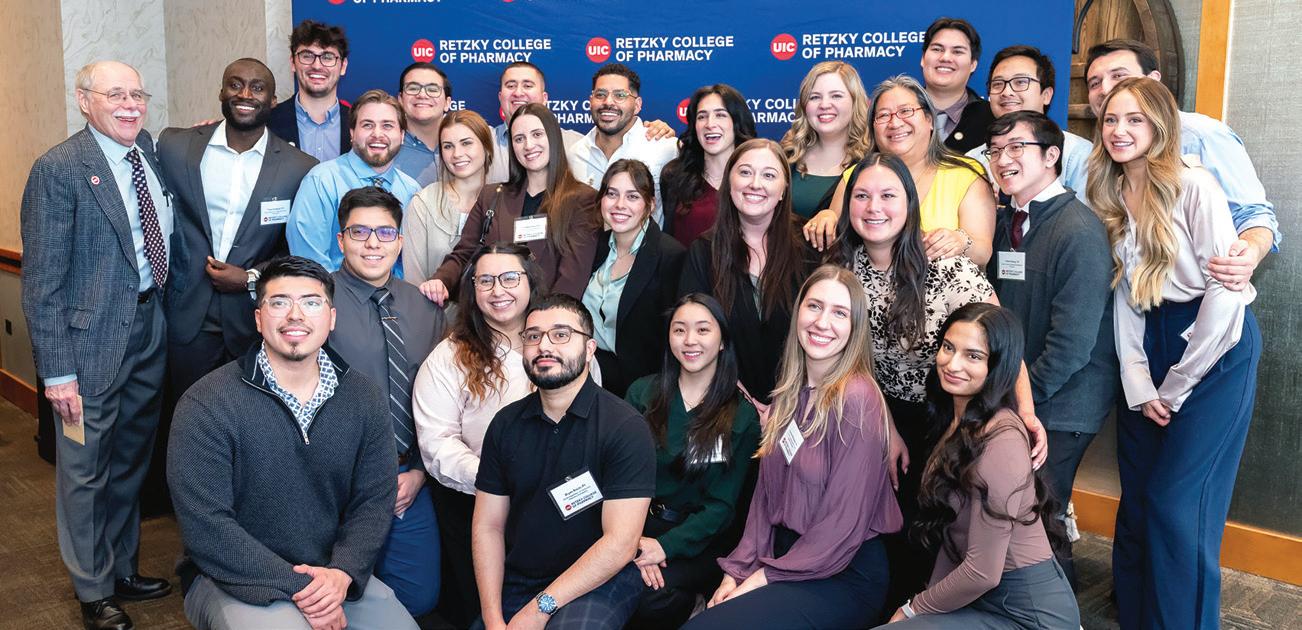
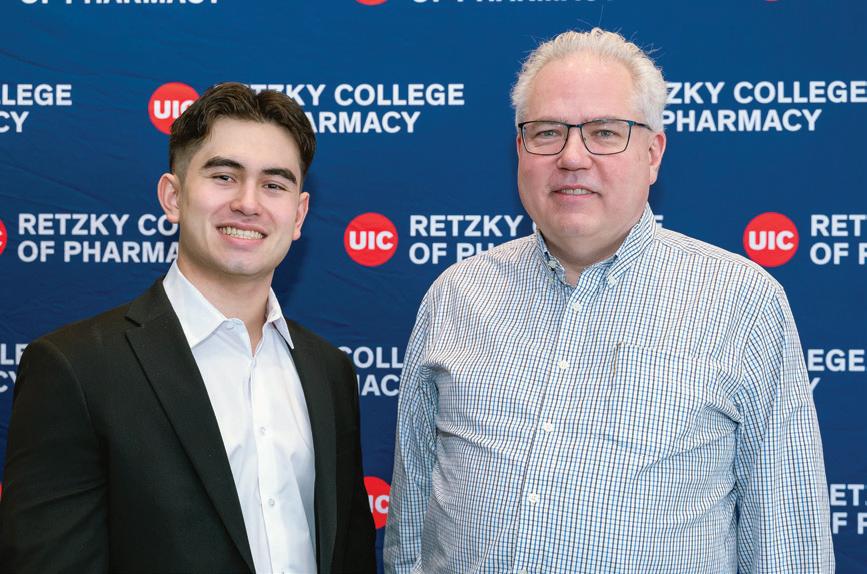
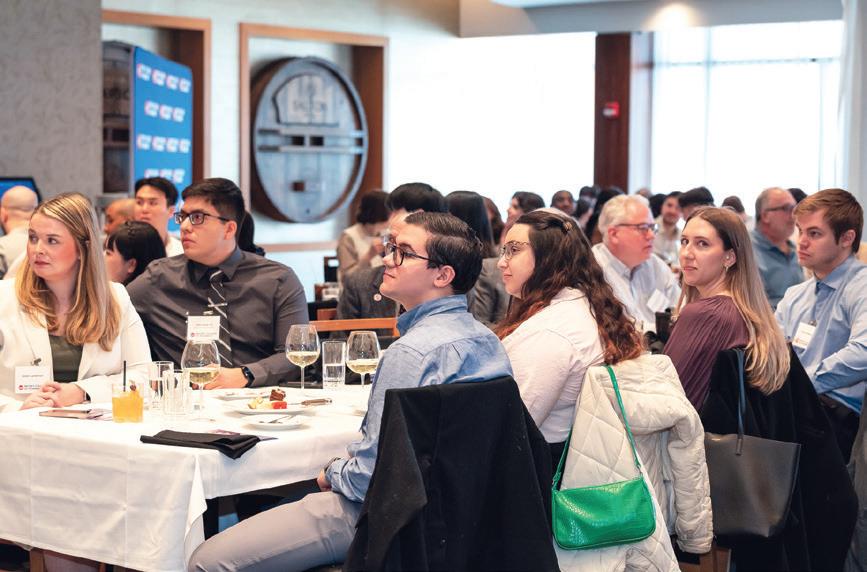
2025 HONORS CONVOCATION
This year, the Retzky College of Pharmacy held its 73rd Annual Honors Convocation, celebrating 127 student scholarship recipients and the donors who funded these awards. More than $175,000 in scholarships were awarded, including three new scholarships presented for the first time:
Rolla Sweis, PharmD ’98 funded the Tayel Jamil Sweis Family Endowed Scholarship to honor the memory of her dad who inspired her career path.
The Harvey Tenenblatt Scholarship was created by Ms. Lori Morgan and Mr. Gerald Tenenblatt, to honor their dad Harvey, a 1958 alumnus and long-term employee with Walgreens.
The Thom A. Tolhurst Memorial Scholarship was created to honor the life of beloved faculty member Thom Tolhurst. This scholarship will be awarded to P2 students, which is a group Thom often worked with. This fund was created by Thom’s daughter, Brooke Tolhurst, Thom’s beloved partner, Varanya Chaiyaperm, and other family, friends and supporters.
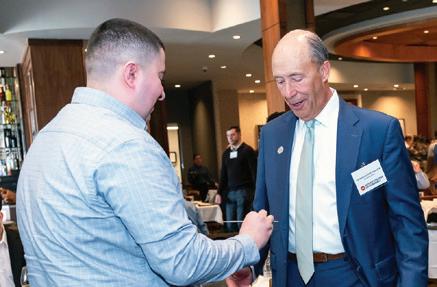
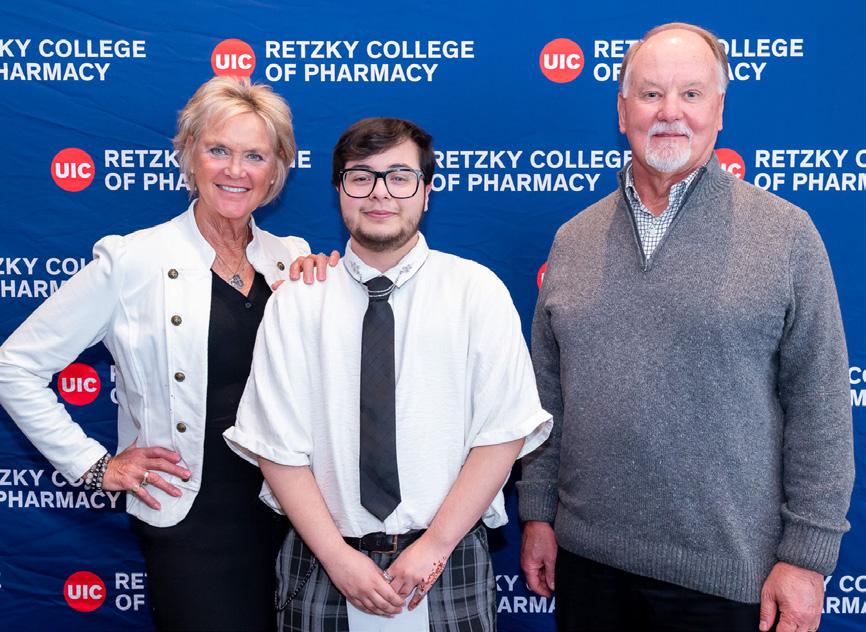
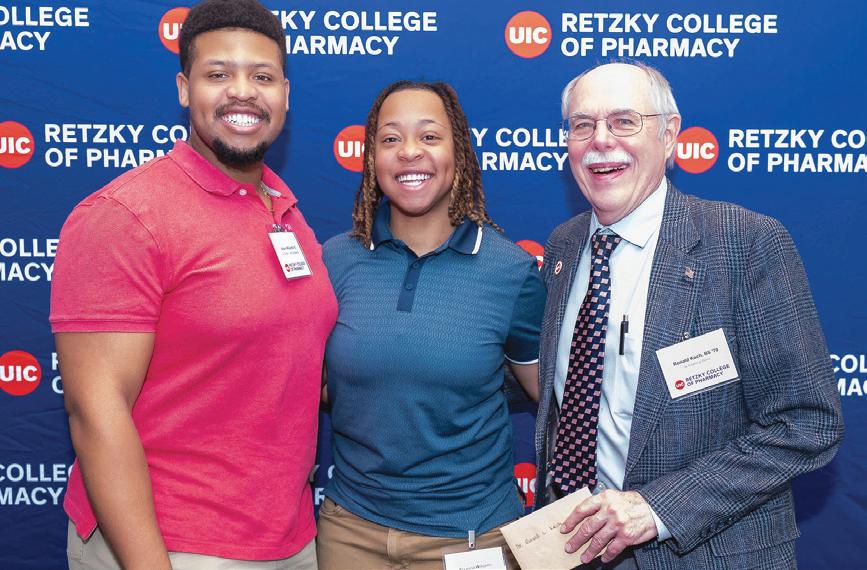
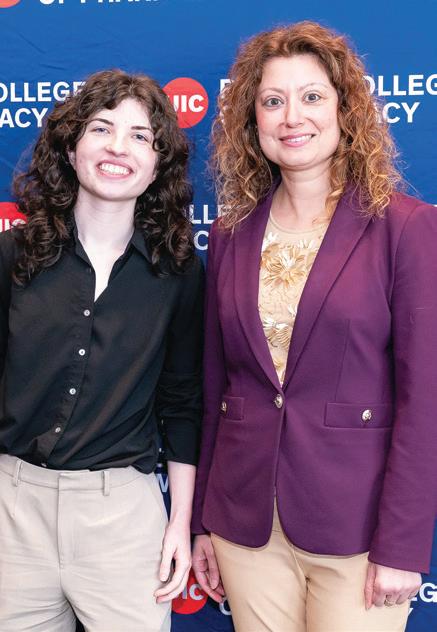
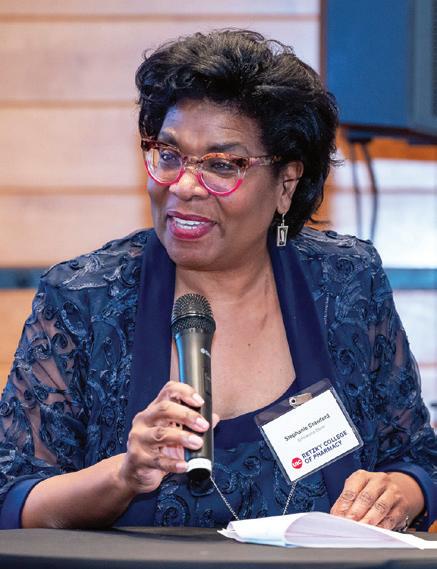
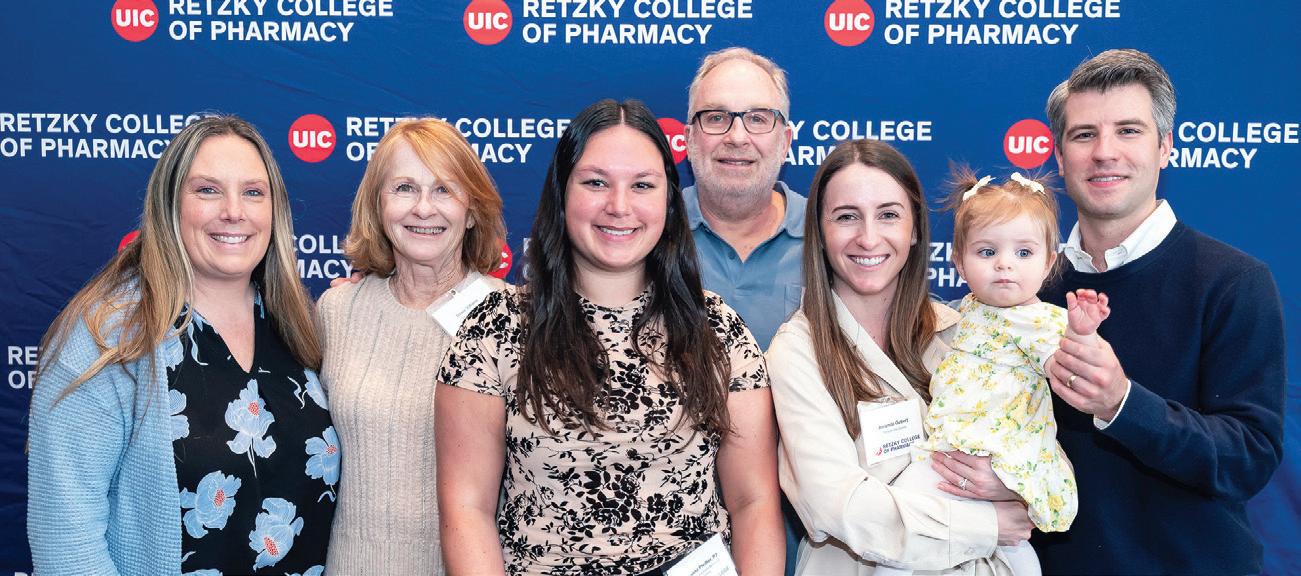
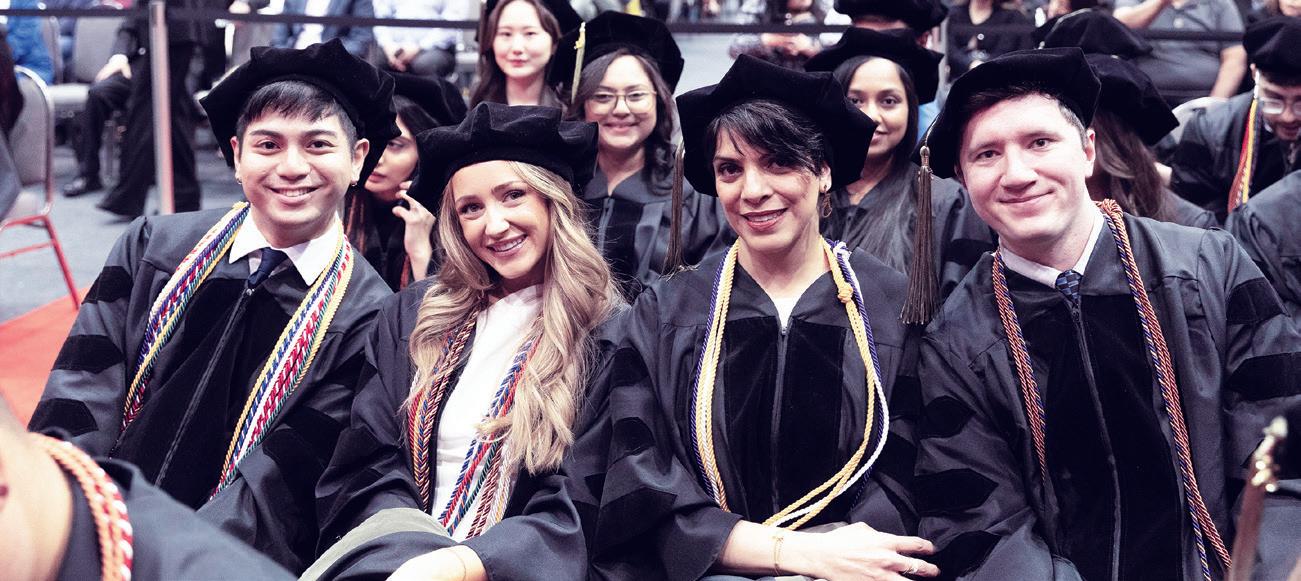
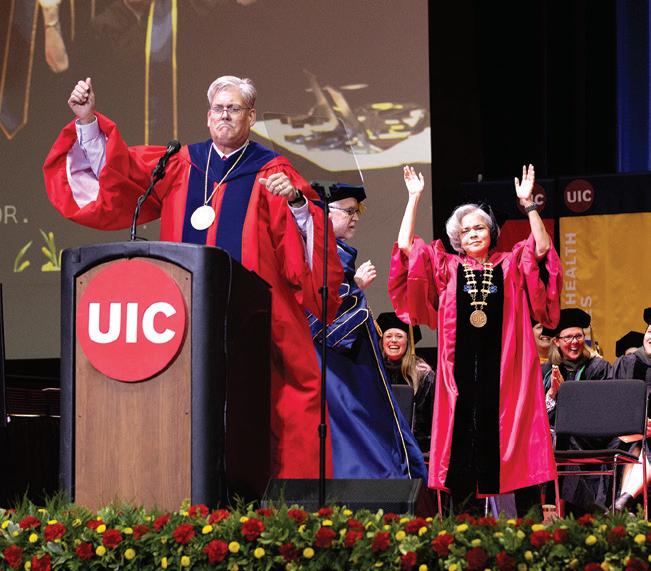
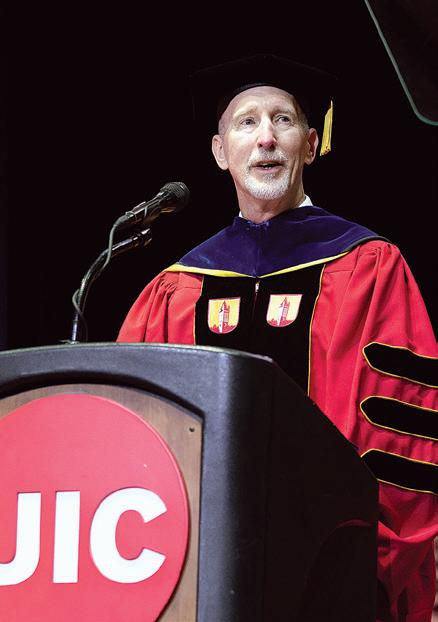
Congratulations to all the 2025 graduates, the first class to graduate from the newly named Herbert M. and Carol H. Retzky College of Pharmacy! And a special congratulations to our Class of 1975 Golden Graduates, who came to celebrate, show their support, reconnect and relive their college days from 50 years ago. As Dean Schumock said in his address to the graduates, "We are very proud to proclaim you Alumni – part of a network of over 11,000 of the best pharmacists and pharmaceutical scientists in the world!"

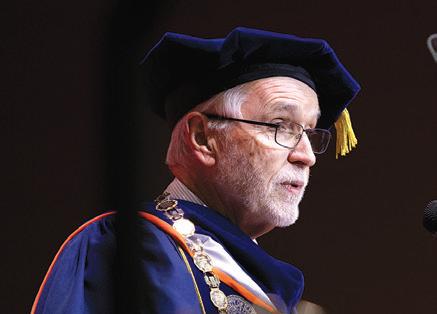

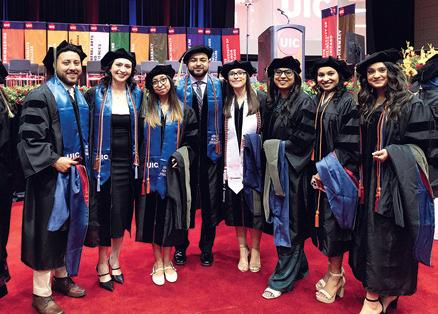

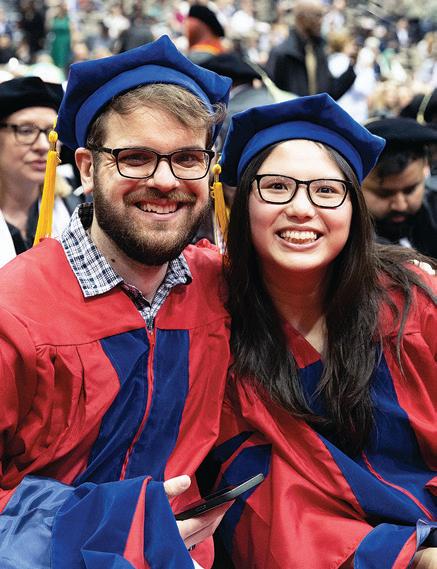
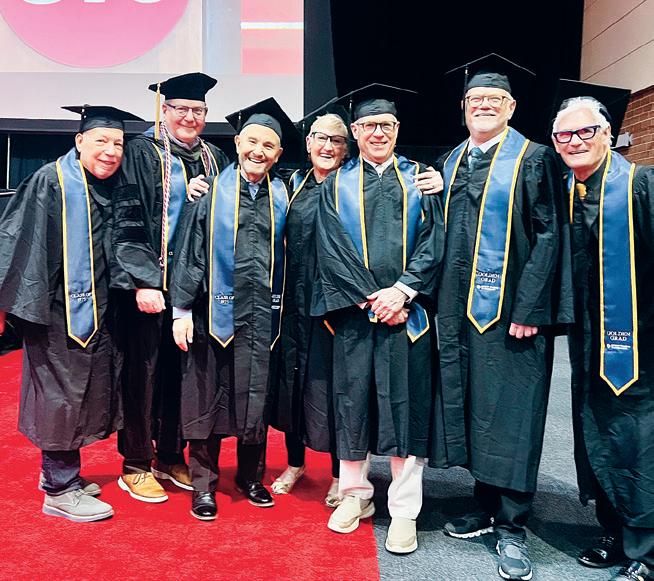
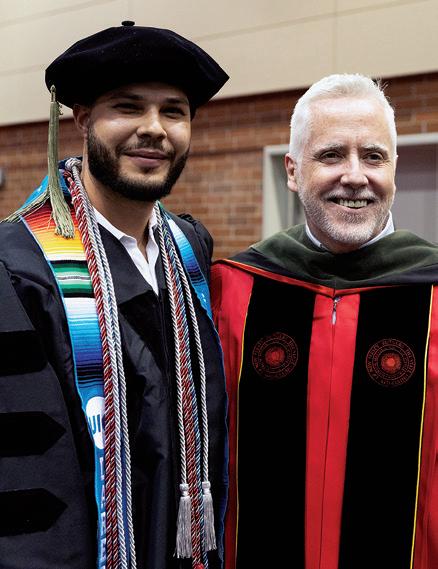

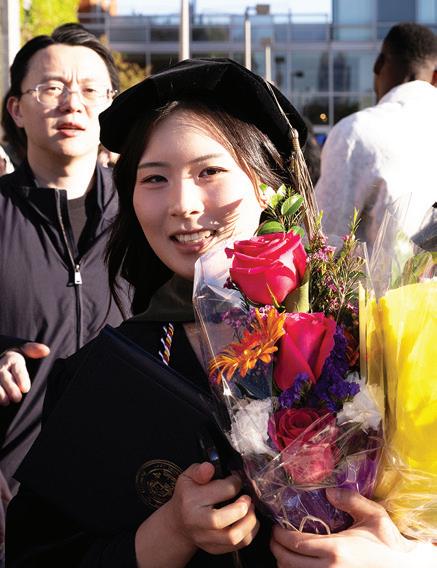

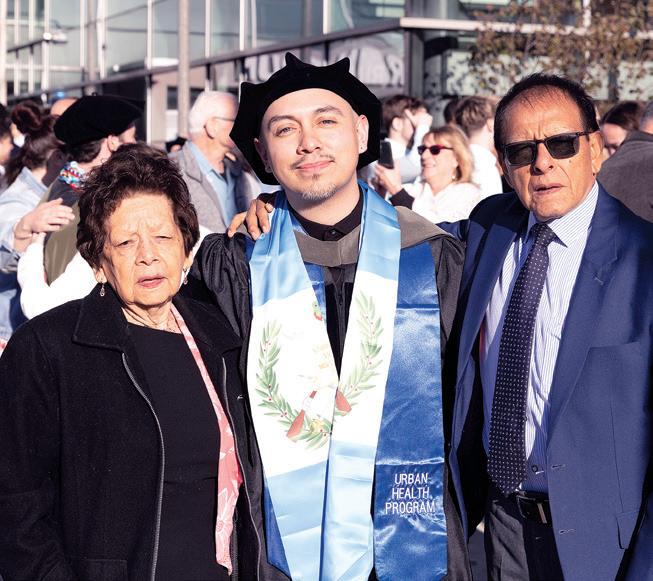
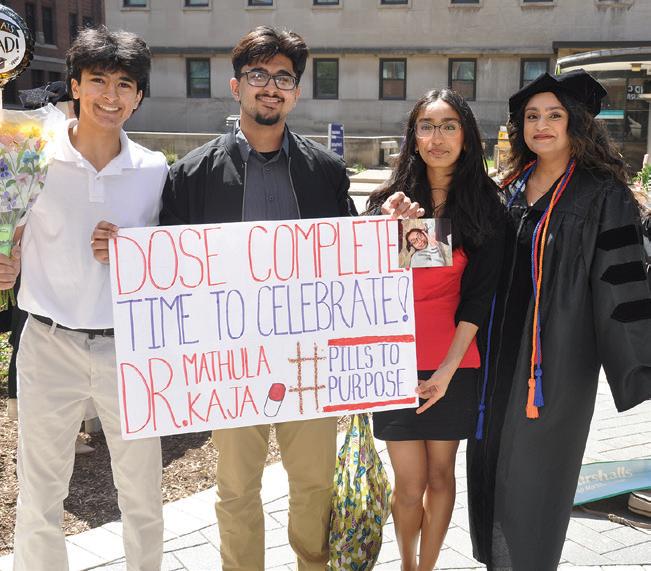

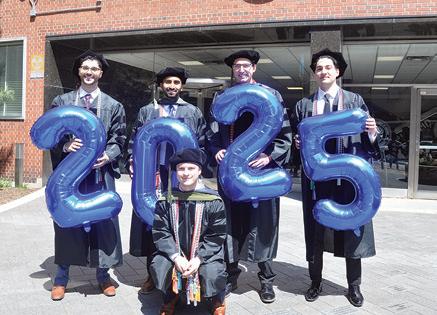
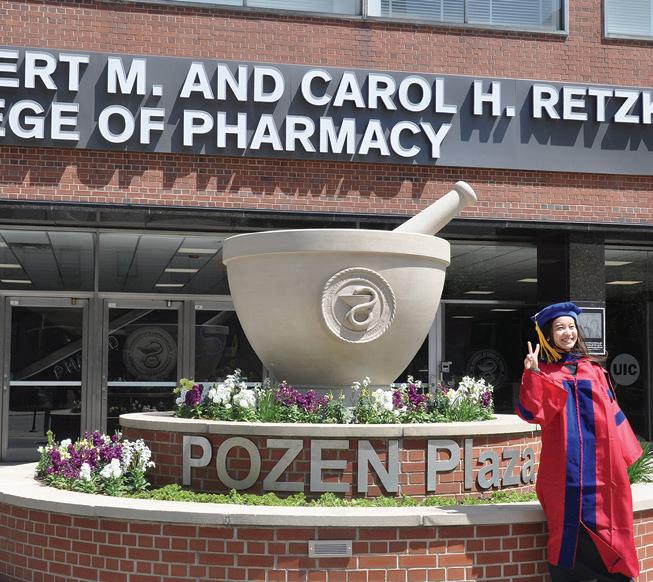
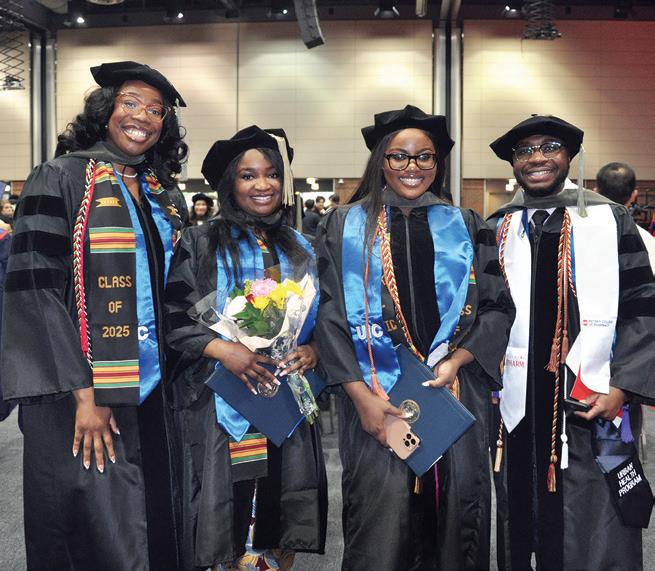
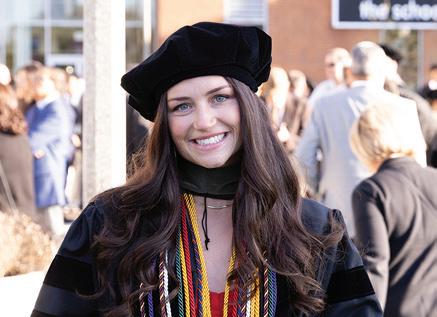
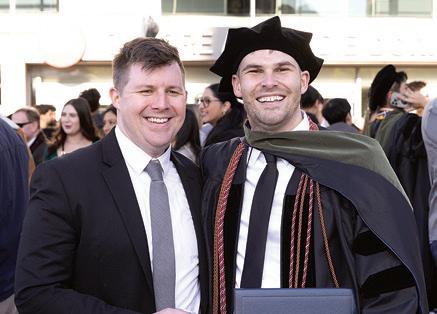
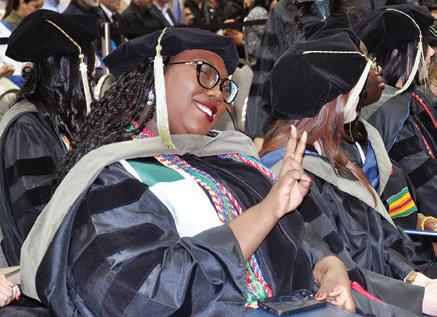
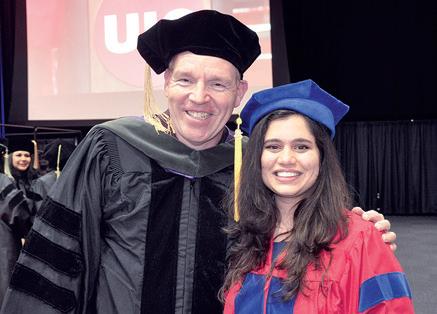
The College kicked off celebrations for the Golden Grad Class of 1975 with a special reception on Thursday, May 8, 2025, held prior to the graduation ceremony. Attendees enjoyed a private gathering at the college, then joined the commencement procession and were seated on stage in honor of their milestone reunion. Class of 1975 member Linda Glider had the honor of leading the 2025 PharmD graduates in "The Oath of a Pharmacist." This event marked the beginning of a yearlong celebration of the Class of 1975, with the next major event taking place at the Alumni Reunion on Saturday, October 4, 2025, which will also recognize other milestone reunion classes.
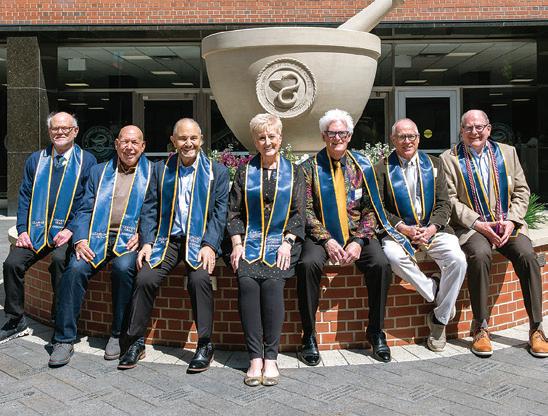

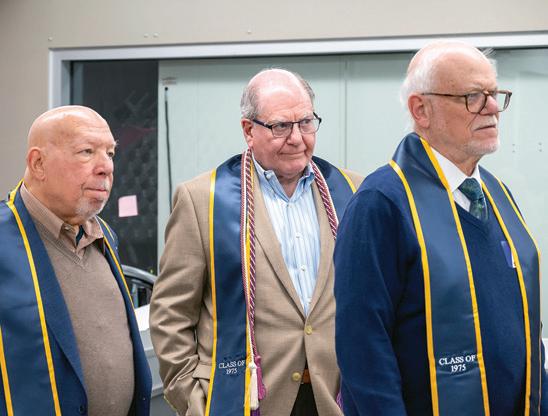
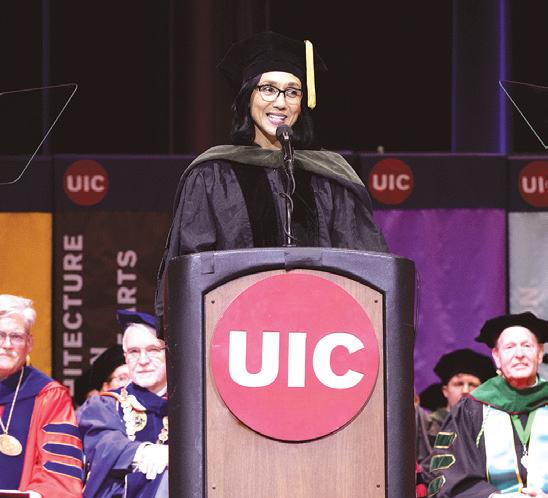
The College was pleased to welcome Dr. Jennifer Perry, PharmD ’98, as the 2025 Commencement Speaker. Dr. Perry is currently the Chief Strategy Officer and Head of Commercial at Bicycle Therapeutics, a growing biotech research company based in Cambridge UK. In this role she leads the corporate strategy, portfolio management, and commercial activities that will launch the next generation of oncology drug conjugates. Jennifer has over 20 years of experience in the industry leading teams focused on bringing new medicines to patients. Her experience spans commercial and medical roles with a focus on launching novel and much needed oncology therapies for leukemia, lymphoma, ovarian cancer, breast cancer, and melanoma.
“What an honor to be able to speak to this graduating class and feel the love of your families, friends, and supporters. I am truly touched and honored to have this opportunity and to be back at UIC, the amazing school that made me what I am today, and in my hometown, my first love… the great city of Chicago!
I remember sitting in your seat back in 1998 as a proud UIC Flame, and I remember being told I should be excited, and I should feel proud, and that I should look forward to all that was lying in front of me. I was all those things, and the energy going through—electric— just like today. But I need to be honest: I was also a little nervous.
I had been planning for pharmacy school, and then I went to pharmacy school, and I was consumed by all the learning and the personal growth, and suddenly it was over. What the heck was I supposed to do now?! A little doubt crept in. Did I pick the right first job for me? (The answer was no—and that's a presentation for another day.) Should I have done a fellowship? (Well, too late for that, honey—missed the deadline by about six months!) All my friends were going into community or clinical pharmacy. (Do they know something I don't know?)
So, my job today—27 years later… after having a happy and fulfilling career and many amazing adventures—is to let you know that it will all. be. okay.”
We asked several of our graduating Doctor of Pharmacy (PharmD) student leaders from the Class of 2025 to reflect on their time at UIC and offer their advice for future student pharmacists. Check out their reflections below, and congratulations to all the graduates of the Class of 2025, who officially celebrate commencement on May 8, 2025! For more information about UIC Pharmacy graduation, visit graduation.pharmacy.uic.edu.
CLASS OF 2025 / ROCKFORD CAMPUS
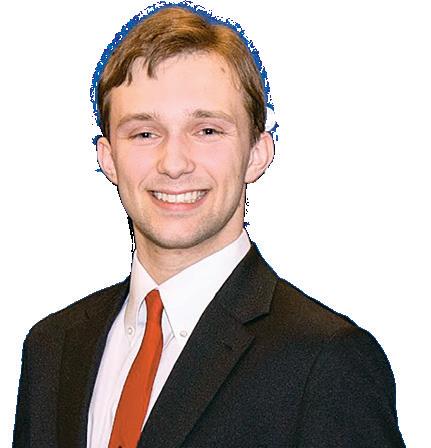
What will you miss most about UIC?
The people! Over the past four years, I’ve made connections in both Chicago and Rockford that I hope will last for a lifetime. I believe that one of the major benefits of attending the Rockford campus is the small class sizes and high student-to-faculty ratio, which foster a strong sense of community.
What is a favorite memory of your time here?
My favorite memory was attending the [Retzky] College Naming Celebration last September. I was fortunate enough to be on Academic APPE at the time, which gave us the opportunity to participate in the ceremony and the reception that followed alongside several
of our classmates. It was truly thrilling to be part of such a significant milestone in the college’s long and distinguished history. This trip also marked my first visit to our Chicago campus, and it was surreal to finally see, in person, so many faces and places I had (mostly) only experienced through screens during the past three years.
How have you grown since your P1 year?
The program has done an excellent job of preparing us for both the clinical and nonclinical aspects of pharmacy practice. One of my greatest takeaways— something I may not have fully considered as a P1—is the understanding that, while we must practice with discretion and trust in our own clinical judgment, practice is not a matter of You vs. The World. Any health system is only as strong as the collective effort of its providers and their ability to communicate and collaborate effectively as a team. This extends not only to our fellow pharmacists but to technicians, physicians, nurses, specialists, and anyone who plays a role in providing care to the patient.
Did you experience challenges during your PharmD program? How did you overcome it?
In the summer before my P1 year, I was diagnosed with Ulcerative Colitis (later re-diagnosed as Crohn’s Disease). This was, of course, an unwelcome and untimely development as I prepared to begin pharmacy school. Managing IBD symptoms and finding a medication therapy that works for me has been a long and arduous process. Four years later, I am happy to say that I am now very well-managed. I have been very open about my Crohn’s with my peers, and I believe that my experiences as a patient have shaped my perception of
patient care, particularly in the management of chronic disease states, as a student and soon-to-be pharmacist. I’m also proud to say that I did very well on the IBD portions of our PHAR 504 Immunology exams!
What advice do you have for future graduates of UIC’s PharmD program?
One piece of advice I received heading into my P4 year was that it is perfectly okay not to know everything that will be asked of you. In an experiential learning environment, you will inevitably face situations where: A) You encounter a patient case that is complex or doesn’t neatly align with any single scenario your coursework prepared you for, and B) You second-guess your recall of a topic covered in a PDAT lecture from three years ago that you’ve rarely thought about since. And that’s okay! In these situations, know that you are there to learn, and that even after graduation, you will never stop learning.
OF 2025 / ROCKFORD CAMPUS
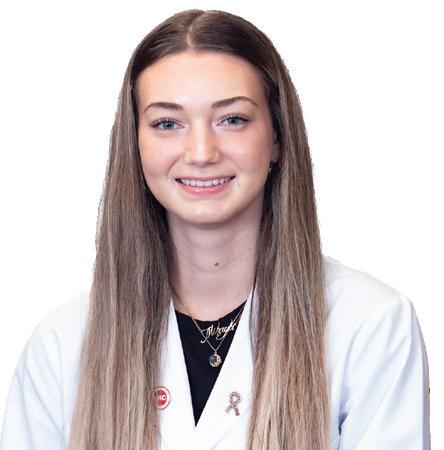
What will you miss most about UIC?
I am very grateful for the experiences and relationships I have built during my time here. I will miss both my classmates and the dedicated faculty who have played a significant role in my academic and personal journey. Throughout my four years, I have had the privilege of forming meaningful connections with professors and mentors whose guidance and support have allowed me to become the person I am today. These relationships have not only shaped my educational experience, but they have also inspired me to continue striving for excellence.
What is a favorite memory of your time here?
One of the memories I will cherish the most is studying with classmates before exams. Despite the shared anxiety and pressure, there was an incredible sense of
closeness. We always supported each other regardless of the outcome. Another memory of mine was having the opportunity to speak at the Class of 2027 White Coat Ceremony. It was a full-circle moment knowing I was standing before the next generation of pharmacy students. It was exciting to know that they will continue to uphold and advance the profession, and one day they will become my colleague.
What advice do you have for future graduates of UIC’s PharmD program?
Embrace and enjoy every step in your journey. Your four years in pharmacy school will pass more quickly than you realize. Make sure you take the time to appreciate the experiences you will have over these years as they will contribute to your personal and professional growth. I would also encourage building relationships with classmates of different years. Upperclassmen can offer valuable advice and guidance that will help you along your career in which you are able to pass down to the underclassmen. These connections will not only enhance your time during school, but it will also strengthen the sense of community within the profession.
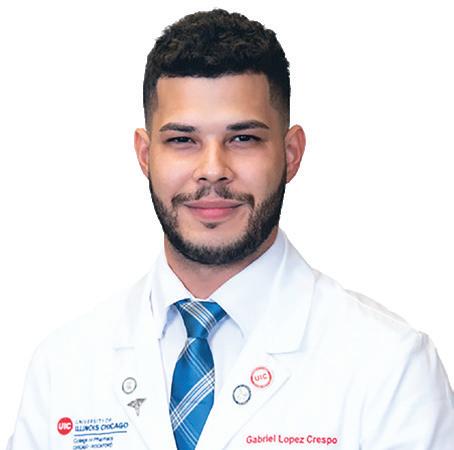
What is a favorite memory of your time here?
The pharmaceutics compounding lab was always fun and engaging—especially the sterile compounding portion. And believe it or not, the late night study session on campus with my classmates before a big cardiology or oncology exam. I really enjoyed and will miss going on different clinical rotations.
Did you experience challenges during your PharmD program? How did you overcome it? One of the biggest challenges was starting the PharmD program after moving from Puerto Rico to Illinois. It
was a huge change in environment and a transition one can never fully prepare for. I struggled academically during my first year. My GPA and involvement were deeply affected, but over time, I was able to adjust and even improve. I became more involved with student organizations, volunteer work, and even balanced two jobs while graduating with Magna Cum Laude. I was able to accomplish this by identifying my weaknesses, learning new skills, and not being afraid to ask for help.
What advice do you have for future graduates of UIC’s PharmD program?
Don’t be afraid to try new things—keep an open mind and step out of your comfort zone. Make sure to dedicate time to yourself—good mental health is key to becoming a successful pharmacy student. Pharmacy school is the place to try different pharmacy fields and get a taste of the different areas pharmacist can practice in. If you’re not involved and actively trying new things, you might miss out on discovering what you’re truly passionate about. Take advantage of every opportunity, connect with your peers and mentors, and don’t be afraid to ask questions—this is your time to grow both professionally and personally.
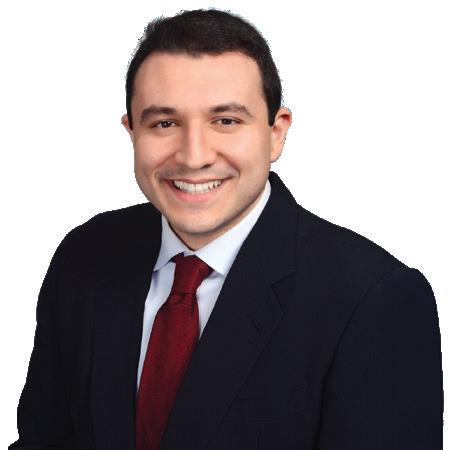
What will you miss most about UIC?
I am deeply grateful for the support of my classmates, faculty, and preceptors who have shaped me into the pharmacist I am today. UIC provided an environment that pushed me beyond my comfort zone, strengthened my confidence, and prepared me for the next step in my journey as a PGY1 resident at Indiana University Health. I will also miss the little moments, like weekend study sessions in the library and the biggest concern being where to grab food afterward.
What is a favorite memory of your time here?
One of my favorite memories was presenting my research project at AACP. It was an incredible experience to represent UIC, share our work on medication management, and engage with faculty and students from across the country. Another highlight was my ambulatory care rotation, where I gained confidence in making patient-centered recommendations and collaborating with an amazing care team.
How have you grown since your P1 year?
My journey at UIC has transformed me into a confident, adaptable, and patient-centered clinician. As a P1, I focused on memorizing facts, but over time, I learned to think critically, apply knowledge in real-world scenarios, and embrace challenges as opportunities for growth. The mentorship and training I received here have given me the foundation to succeed in residency and beyond.
CLASS OF 2025 / ROCKFORD CAMPUS
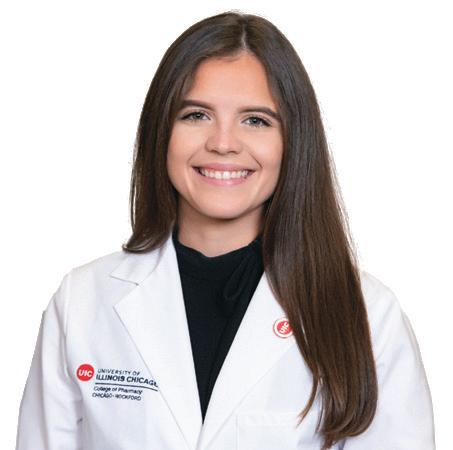
What will you miss most about UIC?
After graduation, I’ll be staying with UIC to continue my training as a PGY1 resident to become a clinical pharmacist; therefore, even though I’ll miss being a student and the bond with my classmates, I’m excited to stay at UIC and continue growing as a PGY1 resident.
How have you grown since your P1 year?
I have grown tremendously. As a professional, I’ve gained more clinical experience, which has given me new confidence. In addition, I’ve gathered many different resources and skills that help me make better decisions. Also, I’ve had the opportunity to create bonds with many faculty members who have mentored me throughout this journey. Personally, I’ve become more open to challenges and more confident in my ability to adapt, communicate, and stay grounded under pressure.
What advice do you have for future graduates of UIC’s PharmD program?
Hang in there. It might feel overwhelming at times, and challenges may shake your confidence, but we assure you that you know more than you think. The years will fly by, so trust yourself and keep going. You’ve got this.
CLASS OF 2025, CHICAGO CAMPUS
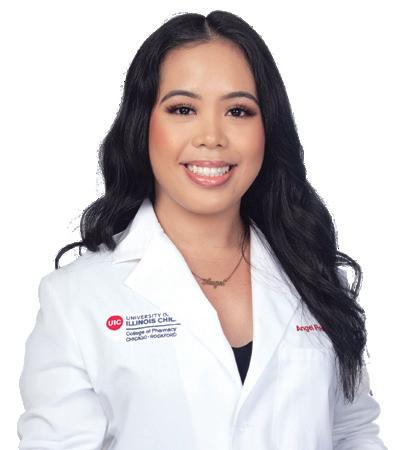
What is a favorite memory of your time here?
Studying with friends during P1 and P2 years by playing Jeopardy-style trivia before exams. It made learning fun and strengthened our bond as classmates.
How have you grown since your P1 year?
I’ve developed strong interpersonal skills. Pharmacy school taught me how to adapt my communication style when interacting with different audiences—whether it’s patients, preceptors, and other healthcare team members.
Did you experience challenges during your PharmD program? How did you overcome it?
Applying to both residency and fellowship programs was a challenging and emotional process filled with more rejections than acceptances. But I learned that persistence and resilience are essential. I stayed true to my goals and eventually matched with an HSPAL residency program in Orlando.
What advice do you have for future graduates of UIC’s PharmD program?
Get to know yourself as early as possible—your strengths, values, and interests. It’ll help you seek out opportunities that align with who you are and where you want to go.
CLASS OF 2025 / ROCKFORD CAMPUS
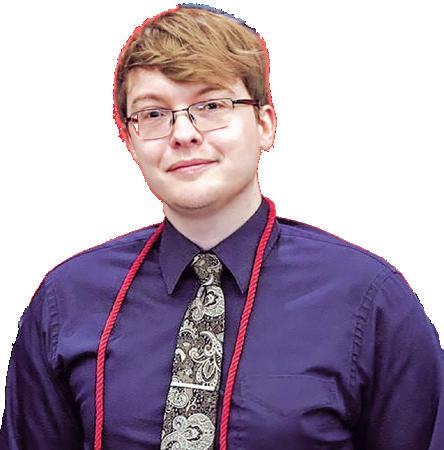
What will you miss most about UIC?
I will most miss the amazing faculty and staff after I graduate. UIC RCOP is a collection of some of the most caring, talented, and intelligent people I have ever met. I have had incredible experiences at UIC RCOP because of their guidance and support. I can never thank them enough!
What is a favorite memory of your time here?
My favorite memories involve nominating my peers for Student Leader of the Month and the Chancellor’s Student Service Award. The work that many students do to improve the experience of other students and members of the local community is selfless and inspiring. Thinking back on my time here, the thing that I am most proud of is advocating for my peers who, despite many other competing priorities, still pushed themselves to improve the lives of those around them.
Did you experience challenges during your PharmD program? How did you overcome it?
Life is always challenging, that is what makes it interesting! The challenges I experienced during my time at UIC RCOP were often resolved after considering the advice of faculty and staff mentors. I also reprioritized my goals several times during the curriculum. I think the combination of receiving great advice and striving to remain flexible helped tremendously.
What advice do you have for future graduates of UIC’s PharmD program?
Life will rarely offer as many opportunities as you will find here at UIC RCOP. Explore everything you think is interesting. Then, explore everything you think is not. You will be surprised how your interests change.

BY JENNIFER FLYNN
Talk to anyone who knows Sameer Shah, President of the Mount Sinai Hospital Medical Center in Chicago, and they’ll tell you he’s a natural leader.
“Great leaders have a gift for making the people around them feel seen and heard, and Sameer has always done that. You can sense that he really wants to talk to you—he’s not doing it because he has to or because he feels like he should. He’s genuinely curious about what you have to say,” says one of Shah’s early mentors, Andrew Donnelly. Donnelly currently serves as Clinical Professor of Pharmacy Practice, Associate Dean for Clinical Affairs and Executive Director of Pharmacy Services at UI Health.
Shah earned his PharmD from the UIC College of Pharmacy, now the Retzky College of Pharmacy, in 2003. He worked for 8 years as a clinical pharmacist at UIC Medical Center and earned his Master of Healthcare Administration (MHA) from the UIC School of Public Health in 2012.
As an MHA candidate, Shah was required to participate in a preceptorship program, which gave students the opportunity to learn from health care administrators in the workplace. Shah hoped to land a preceptorship at UIC, where he was already working and taking classes.
“I loved UIC. My father had a long career there as a toxicologist, so it already felt like home,” says Shah. But Benn Greenspan, who directed the UIC MHA program, had previously served as CEO of Sinai Health System, and he pushed Shah to think bigger. “He wanted me to look beyond pharmacy and consider healthcare leadership,” says Shah.
Greenspan set up an introductory meeting between Shah and Sinai’s leaders, including Karen Teitelbaum, who was serving as the COO and would later become the system
CEO. “That meeting was a real pivot point in my career,” says Shah.
Shah began his preceptorship at Sinai, learning about Teitelbaum’s day-to-day responsibilities and attending board meetings. “I picked up a lot in those meetings. I listened closely as the CEO, CFO, and CMO outlined the strategies they were executing and the barriers they were working to overcome,” says Shah. “It was my first real exposure to how clinical care, operations, community needs, and finances all connect—and how leadership has to balance those priorities in real time.”
Like Donnelly, Teitelbaum noticed how Shah paid attention and engaged with others. “Sameer embodied humility and confidence at the same time, always having an open mind and thinking about things from the viewpoints of others,” she says.
When Shah was finishing his master’s program, Teitelbaum offered him a job as Sinai’s Pharmacy Operations Manager. He embraced the managerial position but didn’t give up his clinical role entirely.
“The best advice I got from Andy [Donnelly] when I moved into management was ‘don’t lose touch with the work.’ So I kept a weekly shift in the pharmacy. That time on the floor helped me build credibility, stay grounded, and better understand what my team was facing every day,” he says.
Shah’s boots-on-the-ground perspective led to his first big success as a manager. It started when he noticed that the automated pharmacy carousel and inventory system wasn’t being used to its fullest capacity.
“I started talking with the pharmacists and techs to find out what was preventing them from using it more. The system was still fairly new, so was this a training issue,
or something else?” Shah recognized two-way communication was essential. “I needed to understand the staff’s concerns and address them. At the same time, I needed to communicate my vision and get people to see how automation could help make their jobs better.”
His approach worked, and the staff learned to embrace automation. As a result, efficiency shot up and staff could spend more time talking to patients.
That change and others like it helped Shah save Mount Sinai more than $1 million in costs just 18 months, all while improving safety and outcomes for patients. Administrators took notice and tapped him to take on other divisions, including respiratory, neurodiagnostics, and the sleep and pulmonary function lab.
While Shah found the transition was challenging, his experience in pharmacy operations had prepared him. “What I discovered was that the principles I used to lead in pharmacy—structure, systems thinking, staff engagement—were just as relevant in other clinical areas,” he says. “It was the moment I realized I could lead beyond my original discipline.”
Teitelbaum, who now works as an executive coach, wasn’t surprised by Sameer’s success. “I always said that if Sameer was in charge of a department, division, or project, I could turn my attention elsewhere, because I knew whatever Sameer was handling would have an excellent outcome.”
As his successes continued, Shah’s responsibilities expanded. In 2020,
he was promoted to System Vice President of Professional and Clinical Services, and in 2023, he stepped into his current role as President. This past spring, he was awarded the Healthcare Leadership Regent’s Award from the American College of Healthcare Executives and the Chicago Health Executives Forum.
Shah says he’s humbled to serve as President of the same hospital where Teitelbaum and other leaders inspired him so many years ago. His appreciation extends to Dr. Ngozi Ezike, current system CEO of Sinai Chicago. "Her trust and belief in me has meant a great deal. Ultimately, her support is what allowed me to step into my role as president."
Shah is also quick to credit Mount Sinai staff, and he regularly makes rounds in various departments so he can talk to employees directly. “I really want to give staff an opportunity to show me what’s going on in their day-to-day work,” he says. “I want to hear what’s going well, what’s not going well, and ideas for making things better. And when we have successes, I want to celebrate them.”
While Shah is focused on Mount Sinai’s continued growth, he maintains ties with UIC. He comes back regularly to speak P2 and P3 students enrolled in the College’s Pharmacy Practice Leadership course, which his former mentor—and now respected peer—Donnelly coteaches. Donnelly says, “By sharing his experience, Sameer shows our students that the sky's the limit with respect to what they might do in health care.”
Pharmacy runs deep in my family,” says Sameer Shah, President of Mount Sinai Hospital Medical Center in Chicago. He notes his wife, two brothers, and sister-in-law all have PharmDs, and they all studied at UIC at some point during their education. Shah’s wife, Annu (PharmD ’04), is a specialty pharmacist, caring for patients with complex diseases. His middle brother, Amit, was a UI Health Clinical Staff Pharmacist for eight years and now works as an informatics pharmacist for the Veterans Health Administration. His youngest brother, Rahul, and his wife, Michelle, work as directors in market access and marketing within the biotech industry. “A PharmD is a very versatile degree, and my family is the perfect example of that.” His youngest brother, Rahul, and his wife, Michelle, work as directors in market access and marketing within the biotech industry. “A PharmD is a very versatile degree, and my family is the perfect example of that.”
SHAH IS QUICK TO CREDIT MOUNT SINAI STAFF, AND HE REGULARLY MAKES ROUNDS IN VARIOUS DEPARTMENTS SO HE CAN TALK TO EMPLOYEES DIRECTLY.
JENNA BOZNOS , PharmD ’16, started a new position as Medical Liason at Novo Nordisk.
CHRISTOPHER CAMPEN , PharmD ’07, started a new position as Principal Medical Science Liaison at Johnson & Johnson Innovative Medicine.
AGNES CHA , PharmD ’08, started a new position as Assistant Vice President, Ambulatory Pharmacy Support Services at Northwell Health.
TANYA (UDDIN) CHAUDHRI , PharmD ’18, started a new position as Director, Regulatory AffairsTherapeutic Strategy: Gen Med/ Cardiovascular at Amgen.
RYAN CLEMENS , PharmD ’24, started a new position as Manager, Oncology External Engagement at Eli Lilly and Company.
SCOTT CONRY, PharmD ’93, was the guest lecturer at the 53rd Albert Ebert Lecture. Richard Daniel, PharmD ’20, was recently promoted to Associate Director, Scientific Communications at Vaniam Group.
DANIEL DO , PharmD ’23, started a new position as manager, Global Scientific Publications at AbbVie.
MARK FRANCE , PharmD ’12, started a new position as Manager of Retail Pharmacy Operations at Advocate Health.
RACHEL GOLDBERG , PharmD ’22, started a new position as Senior Scientific Manager in US Medical Affairs + Health Impact Dermatology at AbbVie.
RACHAEL (JOHNSON)
GOSPODAREK , PharmD ’21, started a new position as a Pharmacist at Lombard Veterinary Hospital.
ELIZABETH (RUSH)
GREENHALGH , PharmD ’07, started a new position as Vice President of Pharmacy Services at Ascension Illinois.
CARIE HUNT, PharmD ’90, started a new position as Clinical Pharmacist at Mercy Health Wisconsin and Illinois.
MARIANA IVANYLO , PharmD ’04, has joined UnitedHealthcare as a Clinical Pharmacist at their Medicare and Retirement STARs Quality National Personal Pharmacy Program.
MIHAELA (POPESCU) JASON , PharmD ’09, started a new role as Regional Pharmacovigilance Lead at Argenx.
SAIRA JATOI , PharmD ’23, started a new position as Senior Manager, US Access Marketing at Alexion Pharmaceuticals, Inc.
TOM KARAGIANNIS , PharmD ’13, started a new position as Head, Immunology Market Access & HEOR (Canada) at AbbVie.
AMY (CZAPKA) KENDALL , PharmD ’99, started a new position as Senior Director, International Regulatory Affairs, Advertising and Promotion at AbbVie.
MINDY (HAN) KIM , PharmD ’01, started a new position as Dermatology and HS Medical Lead, Immunology Operations Intercontinental at UCB.
DOMINIKA KULKA , PharmD ’23, started a new position as Clinical Assistant Professor/ Clinical Pharmacist at UI Health.
EUNICE (KIM) LIM , PharmD ’11, started a new position as a Pharmacist at UCSF Health.
PHYLLIS LIN , PharmD ’08, was recently promoted to Senior AD, Value Evidence and Outcomes Liaison at Boehringer-Ingelheim.
JULIA (URSAN) LUCACI , MS ’15 and PharmD ’13, was recently promoted to Senior Director, Global Economics and Outcomes Research at BD.
SIERRA MEEKS , PharmD ’19, was recently promoted to ambulatory pharmacy manager at UW Health Northern Illinois (formerly Swedish American).
STACEE (WHITEHILL) MONLEY, PharmD ’01, started a new position as Lead Director, Specialty Trade Relations at CVS Health.
BOLU OLADINI , PharmD ’18, received the Rising Star in Medical Affairs award from the Accreditation Council for Medical Affairs (ACMA). Ravi Patel, PharmD ’21, started a new position as Associate Director, HEOR Value Demonstration at Boehringer Ingelheim.
SONAM PATEL , PharmD ’16, started a new position as Clinical Oncology Pharmacist at Providence.
SHILPA PAUL , PharmD ’12, started a new position as Senior Manager, Hematology/Oncology Clinical Program at Longitude Health.
ANNA PURDUM , PharmD ’98, started a new position as Vice President of Global Market Access at Orca Bio.
ZACHARY RESS , PharmD ’21, started a new position at Amazon Pharmacy and PillPack.
ERIN ROBEY-GAVIN , PharmD ’07, started a new position as DirectorMedication Safety and Diversion Management at Prime Healthcare.
KRISTI (FENRICH) RUDKIN , PharmD ’97, started a new position as Director of Contract Development and PBM Account Management at Walgreens.
EMILY (VIEHL) RUX , PharmD ’20, started a new position as Clinical Lead Pharmacist at Loyola Medicine.
SUMIT SAHNI , PhD ’11, started a new position as Senior Scientist at Race Oncology.
JOHN SANDERS , BS ’77, started a new position as Co-Founder at Bleu Glacier Statutory Trust in Sheridan, Wyoming.
AALOK SHAH , PharmD ’13, was recently promoted to DirectorRegulatory Affairs, Advertising and Promotion at Astellas Pharma.
SAMEER SHAH , PharmD ’03, was honored with the Healthcare Leadership Regent’s Award, presented by the American College of Healthcare Executives and the Chicago Health Executives Forum.
KAREN (GOFF) SLEZAK , PharmD ’09, started a new Position as Director, Global Medical AffairsThoracic at Eli Lilly and Company.
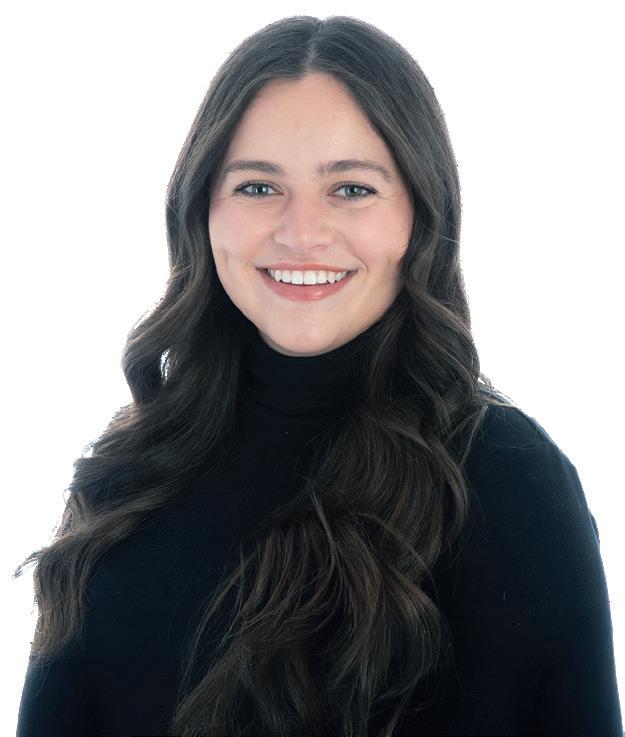
MAHA SUGHAYER , PharmD’01, started a new position as Executive Territory Manager at Eli Lilly and Company.
MARIA TANZI-SAMAAN , PharmD ’01, started a new position as Senior Director, Commercial Training and Development Lead at Menarini Stemline.
NICOLE (FUCHS) THOMPSON , PharmD ’21, started a new position as Associate Director, Medical Communications at Mirum Pharmaceuticals, Inc.
GABRIELLA VAZQUEZ , PharmD ’24, started a new position as Pharmacy Manager at Jewel-Osco.
JOANNA WROBEL , PharmD ’12, started a new position as Clinical Pharmacist at IV Solutions.
Emma started as an associate director of development for the Retzky College of Pharmacy on April 1. Reporting to Derrick Collins, she’s excited to connect with alumni and supporters of the College. She started her career fundraising for pediatric oncology, and she comes to us from the University of Iowa Center for Advancement. There she served as a major gift officer supporting the Colleges of Dentistry, Medicine, Nursing, Pharmacy and Public Health by travelling throughout the Midwest to meet with alumni. She relocated to Chicago in 2022 and enjoys reading and scrapbooking.
You can contact Emma at enagle@uic.edu or 312-355-8439.

JESSICA BENITEZ-BURKE , PharmD ’23, welcomed their child, Maverick James Burke, on June 23, 2024.
TOMMY CHIAMPAS , PharmD ’11, and his wife, Amy (along with their son, Jack), welcomed their child, Benjamin Thomas Chiampas, on September 1, 2024.


CAROLYN DEWARTWOJTANOWSKI , PharmD welcomed their first child, Maisie Phoenix Wojtanowski,
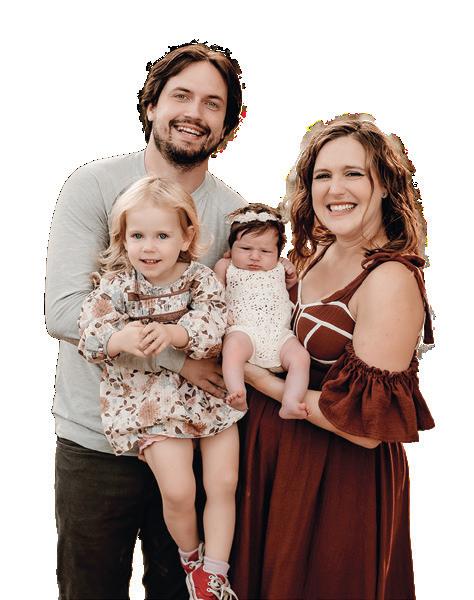


welcomed their child, Violet Vivian Husek, on September 8, 2024.
SIERRA (DELEHANTY) MEEKS , PharmD ’19, welcomed their first child. Aurora Loretta Meeks, on January 16, 2025.

Send us yo ur baby news and photos and we’ll send you a UIC Retzky College of Pharmacy baby blanket! Submit your baby’s information at go.uic.edu/alumniupdate.


GRACE (GO) PILONES , PharmD ’18, and husband Levi welcomed their first child, Frances Pilones, on November 10, 2024.
CHRISTOPHER SAFFORE , PharmD ’16, PhD ’19 and his wife, MERCEDES SANCHEZ , PharmD ’16, welcomed their child, Julian, on February 28, 2025.

KATI (STEGNER) SMITH , PharmD ’16, and husband MATTHEW SMITH , PharmD ’15 welcomed their first child, Elliot Patrick Smith, on January 1, 2025.
JELENA (ANTIC) ZINDOVIC , PharmD ’22, welcomed their child, Ilija Zindovic, on August 3, 2024.

SEYMOUR I. COHEN , Class of 1958, passed on February 27, 2025. Cohen was 88 years of age and a resident of San Francisco, California.
BRANDON COOK , Class of 2021, passed on January 26, 2025. Cook was 32 years of age and a resident of Normal, Illinois.
JANESE (HILL) MOORE , Class of 1984, passed on December 4, 2024. Moore was 63 years of age and a resident of Country Club Hills, Illinois.
ROGER A. NELSON , Class of 1961, passed on February 26, 2025. Nelson was 84 years of age and a resident of Chesterton, Indiana.
CHARLES E. RUFFETTI , Class of 1955, passed on January 21, 2024. Ruffetti was 93 years of age and a resident of Orland Park, Illinois.
